
Tech Diva Biz Talks
Ready to mix business with brains, tech, and just the right amount of side-eye? Then welcome to Tech Diva Biz Talks (formerly the Business Chop), the podcast where strategy slays, tech behaves (mostly), and your host, Audrey “Tech Diva” Wiggins, says what everyone else is thinking about marketing and entrepreneurship.
We’re spilling the tea on business blunders, brand glow-ups, digital do-overs, and how to stop ghosting your website. Interviews? Sometimes. Sass? Always. Tech working better for your business? That’s the goal.
Subscribe now to catch every episode and exclusive content.
Want to be a guest on Tech Diva Biz Talks? Send Audrey Wiggins a message on PodMatch, here: https://www.podmatch.com/hostdetailpreview/audreywiggins
#LetsTalkTech #Entrepreneurship #PublishedAndPaid #Authorpreneur #Storytelling #EntrepreneurLife #MarketingMoves #SuccessBlueprint #StartupHacks #KeepItLegal #ScaleYourBusiness #TechForBiz #SmartMoney #BrandingBoss #Innovation #HustleSmart #Mindset #DigitalMarketing #ExitStrategies #SuccessionPlanning #VisualStorytelling #TeamWork
The Tech Diva Biz Talks podcast is a production of Altogether Marketing LLC founded by Audrey Wiggins, Chief Brand Strategist aka Tech Diva. Visit https://altogether.biz for more information.
Tech Diva Biz Talks
From MTV to Monetizable Media: Vinnie Potestivo on Content Ownership
Vinnie Potestivo shares his journey as an Emmy award-winning visibility strategist and media advisor. In this episode, we explore how content ownership can transform your personal brand into a sustainable, monetizable asset.
Vinnie's expertise spans across TV, podcasting, and digital platforms, with a deep understanding of what makes a brand stand out and stay relevant. As a former television network executive at MTV Networks, he played a pivotal role in launching and growing the personal brands of A-list talent including Mandy Moore, Nick Cannon, and Beyoncé.
Key Takeaways:
- Learn how to claim ownership of your content and intellectual property
- Discover strategies for turning your personal brand into a monetizable asset
- Understand the power of pre-purposing content for maximum impact
- Explore the future of collaboration in the creative industry
- Gain insights on leveraging platforms like IMDb to boost your visibility
Vinnie shares valuable tips on creating discoverable content, emphasizing the importance of explicit visibility in the age of AI and search engines. He also reveals how to use IMDb as a powerful tool for enhancing your online presence and credibility.
Vinnie Potestivo is the founder of VPE TV and host of "I Have a Podcast."
Looking for Podcast Guests?Keep your podcast schedule full with quality guests from PodMatch.
Buzzsprout - Let's get your podcast launched!
Start for FREE
Designrr for eBooks, Blogs
Create eBooks, Blogs, Lead Magnets and more!
Riverside.fm Your Own Virtual Studio
Professional Virtual Studio
Altogether Domains, Hosting and More
Bringing your business online - domain names, web design, branded email, security, hosting and more.
Digital Business Cards
Let's speed up your follow up. Get a digital business card.
Small Business Legal Services
Your Small Business Legal Plan can help with any business legal matter.
Mens and Womens Hats
Since 1972, American Hat Makers has been dedicated to the art of fine hat making.
Disclaimer: This post contains affiliate links. If you make a purchase, I may receive a commission at no extra cost to you.
Want to be a guest on Tech Diva Biz Talks? Send Audrey Wiggins a message on PodMatch, here: podmatch.com/hostdetailpreview/audreywiggins
To work with Audrey schedule a breakthrough/discovery session.
[00:00:00 - 00:02:41]
Welcome to the business Chop where challenges, success, rewards and solutions to entrepreneurship collide. Let's chop it up. Hello chop squad and friends. Our guest today is an Emmy award winning visibility strategist, media advisor and talent brand builder who helps experts, executives and founders get seen, heard and known by scaling content at Media Reach. His name Vinnie Potestivo as the founder of VP TV and host of I have a podcast and that's registered folks, so don't think about you're going to use that tomorrow, you're going to have to pay up. But anyway. Vinnie shares insights on discovery, visibility and impact helping leaders turn their personal brands into sustainable monetizable assets. His expertise spans across tv, podcasting and digital platforms with a deep understanding of what makes a brand stand out and stay relevant.
Now we're going to learn more on the other side of this break. Knock out your competition with All Together Marketing. We elevate your brand. Take a stance with your business name, logo, the tagline, your colors, even the fonts for your business and then jab left with your website, jab right, record values, back up with product experience and bring it on with you. Visit Altogether B and let us help you create a knockout brand.
We're back gang. All right, more about Vinnie. During his time as a television network executive at MTV Networks during those like the 98 to 07 era, Vinnie helped launch and grow the personal brands of A list talent including Mandy Moore, Nick Cannon, Lindsay Lohan, Beyonce and many more. He played a pivotal role in casting and developing talent driven franchises including Punk'd the Challenge, Wildin out, the Osbourne's, Total Request Live or TRL, the Real Housewives of New Jersey. Creating media that shaped pop culture. Put a pin in that folks. Now Vinnie works with high performing individuals and brands to refine their visibility strategy, messaging and discoverability, ensuring they reach the right audience and create lasting influence. He is passionate about helping thought claim their space in media, share their expertise with impact and build credibility that opens doors. All right, Vinnie Puliso, welcome to the business chop.
[00:02:41 - 00:03:38]
That was a mouthful. What awesome breath support. What? What? Also thank you for the business support. It's funny as you're saying that you say and now I this is what I do now. How lucky am I that for the last 30 years of my life I work with people who feel called to wake up and back in the 90s only celebrities did that. And then in the Y2K era some some businesses and brands and platforms started doing that. And then like where we are now, more personal brands are doing It So it's crazy to think I. Same thing. 30 years. People who wake up who feel called to not just start a conversation, but support it, who need to make change and do it through some creative process that starts a conversation. Because like now that you own a podcast, by the way, those shows that you said, all those names that you mentioned, they don't own the shows that you just name dropped. That's what I started laughing.
[00:03:39 - 00:03:39]
Come on.
[00:03:39 - 00:03:50]
You own more than they did back in the beginning of their career where everything, literally everyone tries to own your content and your brand. So thanks for the space and opportunities. Yeah, yeah.
[00:03:50 - 00:04:25]
And where you're talking about owning a brand. When we were off, off camera, you know, before we got started, we talked about owning our content and you, you know, Reg, you know, having our inner, our IP and intellectual property protected. And that is so important because we don't. I know even as a marketer, a lot of times I really didn't even think about that. You know, I registered the business name. But then, you know, as the years go by, you create stuff and, and it's crazy. You look backwards and you don't even like, dag, I didn't, I didn't send that off. You know, those few hundred dollars or whatever. You know, in the long run, what could pay off for sure.
[00:04:27 - 00:08:18]
Yeah. And by the way, just, just real quick on intellectual property, because I am really, I am really. It's a big reason why I left the side of. Of media until it's why I left the industry of television in. In the industry of media. Because the iPhone changed how we can own and create our own content. And I know that yes, I get a lot of credit for launching personal careers and celebrity careers and I get a lot of credit for creating TV shows that are like well known. What I give myself credit for what where I want to take it. I took MTV as a. An American cable network that wasn't. My grandparents lived in Kansas and we didn't even like the Bible Belt didn't even get MTV. So like we weren't even fully distributed in America in the late 90s. When I got to MTV, it was a cable network and I was hired to be a talent coordinator in something called the talent development department. It was our job to find the on air talent and it put me in rooms with celebrities and the celebrities would literally say to their managers, why is this college graduate hosting the biggest show on MTV? I have the number one video on MTV. Actually this. It was Will I am who literally says this is how I Had the idea of getting celebrities to host shows on MTV because forever that never happened. I think they thought, don't break the wall, you know, like it's us and them. And I made it a we by giving the celebrity the microphone. And then you mentioned the Osbornes and Punk and Newlywed. Then I gave them the cameras and I said, you're storytellers. I trust you tell the stories, take ownership back of your life. And it happened to be Sharon Osborne who pitched the Osbornes meets like the Real world was kind of her, her idea of the pitch. But look, Sharon, the matriarch of the family, that's a, a female run business that was pretty interesting to us newlyweds. Jessica Simpson is a billionaire. Creating spaces for women in media is something I don't want to say fell into, but it was the era of time at MTV where we were hyper supportive of our female audience. And we really. Mandy Moore, Beyonce. I mean, I can go down a huge list of artists who I just happened to start, you know, in media at the same time they did. It was a hyper, hyper collaborative art space. And I think what I did at MTV was I put, I mean, look, they paid a premium, so they were paying money to be in Times Square. I was just like, let's look, listen to the people who are already in the, who are already in our building. These are the people who are supporting us. Why aren't we, why aren't we further support? Why aren't we giving them EP credits like Ashton Kutcher? Why aren't we giving them production company opportunities to be bigger? Like we have that. And we became a collaborative platform and brands saw that. And then we had enough content. Enough because this is where they say reality TV is cheap. We had enough content because reality TV cost $200,000 per episode as opposed to $3 million per episode if it's scripted and all that happen. So MTV finally had enough IP intellectual property to go around the globe, and now there's MTV and all these different countries. And it's all because we own the content. So we can transcribe it and we can translate it and we can propagate it and aggregate it and syndicate it. There's so many ways to make money from content when, when you own the intellectual property. And I think that's where I'm having a lot of fun, especially with podcasts. I'm getting podcasts now on Delta and United and American airlines, on gas TV and laundromat TV and elevator TV. I'm getting us played in the 30 second ads that people have to watch on Hulu and Peac. And those are really high value.
[00:08:18 - 00:08:19]
Yeah.
[00:08:19 - 00:09:27]
And let me tell you something. Someone will pay. A brand will pay you for guaranteed impressions in video media. So like a thousand impressions. They'll pay you for a guaranteed impression if you can deliver your expertise. So it's like your brand is the shell, your brand is the expert here. Your, your semi aligning, you're sort of semi endorsing a product. So align with who you're or service, align with who you're talking about. And your basically creating a 30 second promo video about how great this product is, leveraging how great your expertise is. And you're getting a brand to pay for people, not just to buy their product, but to see you be the expert that recommends their product. That's the act of leadership, visibility. That's how we can be using media in a really unique way to be collaborating with creators, creatives and other brands that people aren't thinking of in media. And it's like those little, these little things that I'm starting to see all stem from owning your content. Intellectual property.
[00:09:27 - 00:09:28]
That's it.
[00:09:28 - 00:10:55]
There's copyright. The little C with the circle on it. Copyright is common law. Anybody can say that. So copyright is. I claim that this is my copy. The words are copy. So it's not the font or anything like that, just the words. That's what copyright means. Right. Trademark is. You have an idea that trademark is also common law. So you can claim trademark, the little tm. You can just claim it, you can just start using it whenever you want. You trademark it. It is your formal idea, you've created it, you've done research, you own this idea and now you're taking it out to market. Registry with the little R in the circle means I've taken that trademark and now I've registered it with the USPTO, with the united, with the, with the trade organization. And that's basically how on a, on a federal governmental level I'm protected and I have a lot more rights that protect me versus just the standard trademark, then there's a couple of other ones. And people know trademarks. There's also creative mark. So if you're a creator or a creative, an artist who does, or business expert who has a specific strategy or implementation that's called a creative mark. And like how you create opportunities in the way that you do a flow, your actions can actually also be protected. So creative marks are a great, are a great, are something that most people aren't aware of, but people who like to get paid, who don't like to get their stuff stolen certainly are. Yeah.
[00:10:56 - 00:11:01]
Yeah, that's fantastic, man. Well, you know, thanks Vinnie, for, for enlightening us on that. You know.
[00:11:01 - 00:11:54]
Oh, you can now right off because these, these networks are owned. They're on the American Stock Exchange. They're going to, they're, they have to make money for the board and like, yeah, any other country in the world allows you to own your idea and they commission it. Like, like in Sweden, they would commission the idea. You own the idea. Tyra Banks did this. She takes Top Model to Sweden or the, the Nordic countries, sells it there, retains ownership of it. It becomes intellectual property. When it's purchased or heirs. She brings it back to America and says, you can't buy this from me, but you can license it from me. So yeah, America, Australia, and she retained ownership of that. That's different than like MTV that owns Osbornes and Housewives, that owns the Real, I mean Bravo that owns the Real Housewives of, you know, all those franchises and stuff like that. Yeah, ownership matters.
[00:11:54 - 00:12:07]
It really does. Yeah. Because often I think about, you know, what you would have since we were more of this global society now, how, how our content gets, you know, duplicated or just stolen outright. You know, how we. Yeah, that, so that's real.
[00:12:07 - 00:16:03]
But our visibility is our viability and there's so much we can be doing and you own your content. What, what I just saw happening with AI in April of 2025 with the advent of video AI, I can now take all of my old. I can take all. If I've, if I'm starting current or have finished podcasting, I can take all my old artwork and animate, animate and illustrate them, bring them to life in way that never happened before. So like, because of technology, I can now create more context around my content. So I don't need to make more episodes, I just need to make more noise. It's kind of like promoting Avatar. Many of us probably didn't see this. You know, many of us probably didn't see the movie or certainly didn't see the second movie, but we saw the trailer or a Star wars film or the Godfather or I can. Some of these epic movies that like we've just gone with the wind epic movies that like people are expected to see. They just didn't. But they saw the trailer and that's the mid form and short form content that really makes impact. And if I can get that distributed where people can't swipe, can't Tap. Can't click. That's a guaranteed view. And it's measured because ads, ironically, are one of the only highly regulated markets in media. The rest of it, the algorithm and the syndication and, and public and Nielsen ratings is speculative at best. You know, say that. So own it. Own it all the way down. And it starts with your name. It starts with your name. That's where it starts. I don't care if you have a name that's similar to somebody else's or not. That's just if people have a name that's similar to somebody else, then like, by the way, I had the same exact name as my father. Thank God, because that gave me the opportunity to differentiate. If I was just myself, Beyonce, then you know what Beyonce had to do to differentiate? She had to practice failure. She, like, she practiced the lights go off in a song, the sh. The mic goes out, the shoe falls off, the wardrobe mouth. She practiced failure. That was intentional. My last episode on my podcast, I have a podcast is with Beyonce and her dad. We talk about how we built out her talent, brand strategy, and how we use Destiny's Child as a group or as a company brand. And then we, we intentionally built their individual brands and I got to play a role in getting Beyonce in film and, and was part of the team that cast her in Carmen Hip Hoppera on MTV. And it was a really cool opportunity to go back and just like, understand the intention that comes along with, you know, with brand building. But it all stems from ownership. And she owns the entire process of the experience now. Right. She even dictates where her music can and cannot be heard on which platforms. That's the power of ownership. That's where you can move communities is in ownership. There's a lot of, there's a lot of real power there. And then as you look into the future of how brands and businesses, especially B2B and especially small businesses will work together, our media archives will be so that are tied to audiences that when we pull together, create community. Right? Because when multiple audiences come together, that, that creates community. That's the power in owning intellectual property. As a small business owner, mid business owner, and I don't even big time business owners are creating networks. So they're, they're ahead of us, you know, yeah, we're, we're still, we're still talking about shows. Five years from now, we'll be talking about networks and then we're all going to be looking at Oprah being like, it was right in front of us. The whole, everyone wakes up and says, oh, I'm not the next Oprah. But I wish. What if we were? What if every single person was? Because, like, I have a little secret here.
[00:16:03 - 00:16:04]
I do have a network.
[00:16:05 - 00:16:07]
Good, good. And lean into that.
[00:16:07 - 00:16:16]
Yeah, yeah, yeah. Sometimes time it's intentional. Yeah, yeah. And having the right people around you, you know, it's like, hey, this is serious what you have. Let's, let's push this.
[00:16:16 - 00:17:21]
Well, the network is. Yeah, right. The network. The network removes the spin of repurposing content and it creates pre purposing content. So I know who's going to support this. I'm actually going to lean into that even more while I'm creating it. This is what we do in broadcast media and simulcast and streaming, like larger properties, like, we lean into, like what differentiates us from other platforms. And that's having that intention around you is really, really important. Yeah, it's crucial. Especially as these economies up and down the way that it's being Talked about in 2025, our networks are going to be the things that get us through those really tough times. It is, it's a thing that we didn't have necessarily in place when the pandemic hit in 2020, that hopefully now, as we've become more comfortable creating and zoom has really opened up doors for us to be better at communicating with real people. And it doesn't feel so awkward anymore. And ownership, all that stems from owning it. And there's so much more to go. And by the way, there's more platforms to come.
[00:17:21 - 00:17:22]
Okay.
[00:17:22 - 00:17:25]
More platforms to come. And platforms need stars. This is what I do.
[00:17:25 - 00:17:26]
Yeah.
[00:17:26 - 00:17:27]
I give those stars.
[00:17:27 - 00:17:29]
We're going to contact you, okay?
[00:17:29 - 00:17:33]
Oh, no, I mean, don't contact me. Just listen to me. Like take action.
[00:17:33 - 00:17:34]
Right, Exactly.
[00:17:34 - 00:17:41]
Don't call me. That's the wrong action. That's. I'm not giving you busy work. I want to see you in the spotlight. I do what I do, but I love being in the audience.
[00:17:41 - 00:17:47]
Okay. It is applauding and, you know, giving accolades.
[00:17:47 - 00:18:05]
I'm, I am the standing. Oh, I am that first. I'm the slow clap. I am definitely that person. You know, you hear the laugh, you know, you know, when I'm in the audience, I want you to, I want you to. Yeah, absolutely.
[00:18:05 - 00:19:09]
Well, we're going to take a, another quick break and then we're going to come back and we're going to get into some fun stuff and get serious again too, because this was an awesome conversation we had on the IP A really. Will you appreciate this ownership conversation? Get Your brim on. Since 1972, American hat makers has been dedicated to the art of fine hat making. Their diverse selection caters to outdoor adventurers, style conscious individuals and hat enthusiasts just like me. With a focus on meticulous detail and quality materials, I love wearing their hats. Embrace your own spirit of adventure and individuality. Visit bitpolice/hats now, bit.lee hats now, or use our affiliate link in the show notes to view their vast selection of men's and women's styles. All right, folks, we're back again with, with Vinnie and Vinnie. Thanks again for that enlightening talk about IP and ownership of our content and a little, you know, gave us a little insight into the future. So that was definitely awesome. Before we get into some Max serious again, you want to share a couple of fun facts with the audience.
[00:19:10 - 00:21:26]
Fun facts. Fun facts. On Thursdays, I volunteer at the movie theater. So I'm currently living in Vermont and it's very low population and I live up in the mountains. I was sad I came out of a breakup and I needed space to, to heal. Now my space to heal has turned into my space to grow, as people have pointed out. And I volunteer on Thursdays at this movie theater and I sell popcorn and concessions. It's actually a job that I held when I was in high school. I've met the head of the newspaper, the police chief, every business owner. I've met anyone in a four mile radius who, who cares about talking about content or media and, and what turned into like, I need a hobby and I'm sorry, I need to like, I'm at the point where like I'm, I'm not just talking to my dogs, but they're talking back. So I knew I needed to get out of the house and I took action. And you know, I didn't feel like there was like a content community where I was. And so now I'm excited to say, like I found that opportunity on Thursdays and I get to see a free movie every Snow White. I just saw Black Bag with Cate Blanchett, which was such a good spy thriller and it's good to be back in the theater again. I love paying. This is, I don't know, I'm telling you weird things that I think. I love paying full membership prices for people's content clubs. I love being a respectful member and community member. And I recently found one called the New England podcast group nep and we meet once a month and we meet at, in Westford, Massachusetts at a cable station. So like I get to go back into a TV studio and then talk about podcasting. So that's awesome. I don't know. Just. That's for a city boy who's born and raised, you know, in Staten island in Brooklyn, and lived his entire life in the city and was not aware of geography in general outside of the New York City area like most New Yorkers. And then things that I don't think are surprising, you know, I'm the oldest of six. I think I give off, like, big brother energy. I'm a, you know, I'm a people champion. I make things happen for my siblings. And that includes, like, the good and, like, the blame.
[00:21:28 - 00:21:28]
Right, Right.
[00:21:29 - 00:22:26]
There was an era in my TV career where if you were wonderful, you were on A and E, and you were on Lifetime and Bravo, and if you were terrible, then you were on oxygen or like, BH1. You were doomed to some of those, like, shows that just, like, showed humanity in such a terrible way as TV was during, like, the 90 2008-2012 era. But to realign, to get TV, to get intentional again, to get them to like, to get platforms and networks to be conscious about their. Their content, that's something that I didn't think I'd get to do is, like, weigh in on. On what conversations not only are we starting, but how we're supporting them from a talent perspective. So, yeah, I hope that. I hope that answers the question that was a long winded answer for something I didn't know the answer to. I need to answer these. What's one. What's one of yours?
[00:22:27 - 00:22:36]
Oh, gosh. Well, it's. It's going to. It's going to relate to one of yours you didn't share. And that is. I used to sing in the choir.
[00:22:36 - 00:22:37]
Oh, yeah.
[00:22:37 - 00:22:49]
And so I have my keyboard on the other side of my, you know, backdrop my screen back here. So. So I do play. Play piano, and I enjoy doing that, but I didn't do German music. Yours says that you did German music.
[00:22:49 - 00:23:21]
I did. I did. I was in Germany. I was in German choir. You know, part of my story is so like, growing up as a child, my mom was in and out of rehab a lot. And as I bring up being the oldest child, because it did define me as a leader and. And I did use that a lot in my story of how I built becoming a leader and an educ. An empath in what I do stems from, like, the trauma that my mama gave me, you know, or I got that. She. I got to experience, like, a song.
[00:23:21 - 00:23:22]
We'll talk about that later.
[00:23:24 - 00:23:30]
This is what happens when two. You're like, wait, you can write, sing, you can play piano. I can sight sing. So I'm good.
[00:23:31 - 00:23:32]
Oh, cool, cool, cool.
[00:23:32 - 00:24:10]
I was told I wasn't talented, I think in a loving way, but I took it in a critical way. And then I took action on that and I applied to sing for a vocal scholarship at Wagner College. Now, I gotta be honest, because I come from creative arts, I'm probably like a good personality actor, kind of like, I'm good at like being myself. And then you can give me lines and I can make them like, you know how like Robin Williams or some actors or some. Well, Robin Williams actually played different and dead poet society. He was a completely different character. But usually you can kind of see the him, you know.
[00:24:11 - 00:24:11]
Okay, Right, right.
[00:24:11 - 00:24:33]
Actually he's a, he's a transfer. He's a transformational character. I'm trying to. Robert De Niro, he's always the same, you know what I mean? He's just the same in every movie. He's just De Niro in every movie. Oh, gosh. Now I'm just saying I'm De Niro. Foot in my mouth. Yeah. So just. So just leaning into that thing that I know makes me unique, but also similar.
[00:24:33 - 00:24:34]
Yeah, yeah.
[00:24:34 - 00:24:39]
And that's what I do with leaders and that's what I do with the celebrities and business owners that I work with.
[00:24:39 - 00:25:00]
All right, folks, we're back again with, with Vinnie. And Vinnie, thanks again for that enlightening talk about IP and ownership of our content and a little, you know, gave us a little insight into the future. So that was definitely awesome. And so before we get into some, you know, back serious again, you want to share a couple of fun facts with the audience?
[00:25:01 - 00:26:46]
Fun facts? Fun facts. On Thursdays, I volunteer at the movie theater. So I'm currently living in Ver and it's very low population and I live up in the mountains. I was sad I came out of a breakup and I needed space to. To heal. Now my space to heal has turned into my space to grow, as people have pointed out. And I volunteer on Thursdays at this movie theater and I sell popcorn in concessions. It's actually a job that I held when I was in high school. I've met the head of the newspaper, the police chief, every business owner. I've met anyone in a four mile radius who, who cares about talking about content, media and it and what turned into like, I need a hobby and also I need to, like, I'm at the point where, like, I'M I'm not just talking to my dogs, but they're talking back. So I knew I needed to get out of the house and I took action. And, you know, I didn't feel like there was like, a content community where I was. And so now I'm excited to say, like, I found that opportunity on Thursdays and I get to see a free movie every. Snow White. I just saw Black Bag with Cate Blanchett, which was such a good spy thriller. And it's good to be back in the theater again. I love paying. This is. I don't know, I'm telling you weird things that I think. I love paying full membership prices for people's content clubs. I love being a respectful member and community member. And I recently found one called the New England podcast group nepg. And we meet once a month and we meet at. In Westford, Massachusetts, at. @ a cable station. So, like, I get to go back into a TV studio and then talk about podcasting. So.
[00:26:46 - 00:26:47]
That's awesome.
[00:26:48 - 00:27:17]
I don't know. Just. That's for a city boy who was born and raised, you know, in Staten island in Brooklyn and lived his entire life in the city and was not aware of geography in general outside of the New York City area like most New Yorkers. And then things that I don't think are surprising, you know, I'm the oldest of six. I think I give off, like, Big Brother energy. I'm a, A, you know, I'm a people champion. I make things happen for my siblings. And that includes, like, the good and, like, the blame.
[00:27:19 - 00:27:19]
Right, Right.
[00:27:20 - 00:28:17]
There was an era in my TV career where if you were wonderful, you were on A E and you were on Lifetime and, and Bravo, and if you were terrible, then you were on oxygen or like VH1, like, you were doomed to some of those, like, shows that just, like, showed humanity in such a terrible way as TV was during, like, the 99, 2008-2012 era. But to realign, to get TV, to get intentional again, to get them to like, to get platforms and networks to be conscious about their. Their content, that's something that I didn't think I'd get to do is, like, weigh in on. On what conversations not only are we starting, but how we're supporting them from a talent perspective. So, yeah, I hope that. I hope that answers the question that was a long winded answer for something I didn't know the answer to. I need to answer these. What's one. What's one of yours?
[00:28:18 - 00:28:27]
Oh, gosh. Well, it's it's going to. It's going to relate to one of yours you didn't share, and that is. I used to sing in the choir.
[00:28:27 - 00:28:28]
Oh, yeah.
[00:28:28 - 00:28:40]
And so I have my keyboard on the other side of my. You know, my backdrop, my screen back here. So. So I do play. Play piano, doing that. But I didn't do German music. Yours says that you did German music.
[00:28:40 - 00:29:12]
I did. I did. I was in Germany. I was in German choir. You know, a part of my story is so like, growing up as a child, my mom was in and out of rehab a lot. And as I bring up being the oldest child, because it did define me as a leader. And I did use that a lot in my story of how I built. Becoming a leader and an educator and an empath in what I do stems from, like, the trauma that my mama gave me, you know, or I got that she. I got to experience, like a song.
[00:29:12 - 00:29:14]
We'll talk about that later, right?
[00:29:14 - 00:29:23]
Yeah, exactly. This is what happens when two crazy. You're like, wait, you can write sing, you can play piano. I can sight sing, so I'm good. Oh, cool.
[00:29:23 - 00:29:23]
Cool.
[00:29:23 - 00:30:01]
I was told I wasn't talented, I think in a loving way, but I took it in a critical way. And then I took action on that, and I applied to sing for a vocal scholarship at Wagner College. Now, I gotta be honest, because I come from Creative Arts. I'm probably like a good personality actor, kind of like, I'm good at, like, being myself. And then you can give me lines and I can make them like, you know how like Robin Williams or some actors or some. Well, Robin Williams actually played different and Dead Poet Society, he was a completely different character. But usually you can kind of see the him, you know?
[00:30:02 - 00:30:02]
Okay, Right, right.
[00:30:02 - 00:30:24]
Actually, he's a. He's a transfer. He's a transformational character. I'm to trying of Robert De Niro. He's always the same. You know what I mean? He's just the same in every movie. He's just De Niro in every movie. Oh, gosh. Now I'm just saying I'm De Niro. This foot in my mouth. Yeah. So just so just leaning into that thing that I know makes me unique, but also similar.
[00:30:24 - 00:30:25]
Yeah, yeah.
[00:30:25 - 00:30:30]
And that's what I do with leaders, and that's what I do with the celebrities and business owners that I work with.
[00:30:30 - 00:30:37]
It's okay. So what is your framework then, for helping leaders break through the noise and stand out in competitive industries?
[00:30:38 - 00:31:24]
A lot of it is creating tent. So a lot of it is looking into the future, accepting that we're promised tomorrow, so we're not leading for today, we're leading for tomorrow. So I want to accept that. Right? That's like step number one. It's a good. It's a big belief change. Some people believe that they're not promised tomorrow, so they have to do everything today. And to me, while I agree with the philosophy, the execution of that is a scare tactic. It scares people that tomorrow isn't happening and that the incentive to do something today is based on the fact that you're scared that tomorrow might not come. What if you're not scared that tomorrow isn't going to come? What if you know tomorrow's going to come? I spend my life knowing every single day that tomorrow will come. And you know what? I'm only going to get it wrong once, and I'm not going to be here the day that I get it wrong.
[00:31:27 - 00:31:28]
That's a mind shift right there.
[00:31:28 - 00:32:55]
But you know what I mean, to go to bed and to have to think, is tomorrow going to happen to me every single night? That sounds exhausting and daunting and like a weight, a waste of energy because I. I'm not in charge of the answer, so I'm not going to ask the question that I'm not in charge of the answer of. And I just. If I'm going to be in charge of the answer, if I'm not in charge of it and I have to make up an answer, I'm going to side on myself and I'm going to say, I'm promised tomorrow. So what I'm doing now. Cher says this brilliantly. What I'm doing now has to be relevant five years from now. Otherwise I don't do it. Like, what I'm doing in podcasting right now has. Has taken me to the seat, the of. Of DEI and visibility advisor to podmatch. What I'm doing as a podcaster isn't just appearing in podcasts, which, by the way, isn't only just building out our podcast industry, because our industry is getting bigger because the amount of episodes that are being created and the amount of series that are being created, we the people own those, not the companies. Most of the companies we own. We own this industry. TV is very different. Different. Most of those networks own a lot of that content. So you're going to see Friends pop around on different platforms. Peacock, Paramount, Hulu. You'll see these big shows, IP get bounced around literally like a bidding war. They're athletes in the game of baseball where they can just swap players and teams. That's what the power of being in media is.
[00:32:55 - 00:32:56]
Okay?
[00:32:56 - 00:33:24]
So I look to the future of that and I look to how to support conversations, not create them. And then I create the conversations that I think we can, not that we should, what we should do is contribute. What we can do is create. And I come from a place of that with leadership. I'm not big on filling time, I'm big on creating time. I don't think our podcast episodes should be 45 minutes long. I think they should be as damn long as they can be to make impact. Yeah, I know I started place to be.
[00:33:25 - 00:34:19]
Yeah, I started off with like 50 minutes and stuff. I was trying to, I was first like you though. I was real TV oriented, 30 minutes, the pre roll, mid roll, you know, where I replaced the commercials and all that. And then sometimes it was 1 to 50 and then it's like, you know, this stuff is getting long. I was like, I'm going to do 15 minutes, 15, 20 minutes, you know, and you know, then, then we're out. But sometimes people, depending on what that, that content is and you know who's speaking, thinking, people will sit for two hours on a podcast. So find your, your happy medium. But don't let anybody tell you that nobody's going to listen to that because they just might, you know, then there's others, you know, they look for the five and seven minute details because, because they're always, you know, I got to get to the next thing, get to the next thing. But it's just, it just really just depends on who you are, what you're, what the content is that you're bringing. People will sit, they will sit. You know, podcasts are listening so they're maybe moving around and doing stuff. Stuff.
[00:34:19 - 00:36:23]
But it's so true. Large, large form content. More than like two or three hour content. I come from MTV in an era where people tuned to MTV and didn't watch it. They just, they knew it was on the TV screen because it was a music video or was a talking head person saying you didn't need to be watching it. You wanted the screen on so you can just kind of peek in and look around. You wanted to hear the audio. And I do think that like, like especially if you're lucky enough to work in a small boutique agency, like a less than 10 person agency, creating a podcast, that's the experience of what it's like to work with you during the day. Like what a cool way to scale and grow and, and talking, talking about leadership through, through exhibition and through expertise and through demonstration of what you do to reveal to be transparent on what the process is, what the vibe is like in the office. Office. You can do that with some of these long form podcasts and what we know as morning shows on radio shows with like four or five people. That's going to be a format that does, in long form do really, really well for small sized businesses in 2025, 2026. If you, if you're going to ask me how can I stand out in the podcast game outside of a solo, a solo podcast where I'm talking to nobody, or an interview podcast, which most podcasts now in the podcast world are in. Like this are interview based, thinking of that group dialogue. And I'm telling you it's going to work. You know why? Because there's a certain show on TV that had more than one star in it and ended up having six stars in it. And the more we see these people talk to each other, the more popular and the more famous and the more powerful they got. I'm talking about the Kardashians. That's what made them powerful. It wasn't one, it was like five. We got, we didn't have have to just get Kim's perspective, we got the whole family's perspective. And if we didn't like one, we like the other. And we were able to bip and bop around. But we watched the relationship and the dialogue more than just the monologue.
[00:36:23 - 00:36:24]
Right.
[00:36:24 - 00:36:25]
And that's what I learned there.
[00:36:25 - 00:36:40]
Okay, so how can we take something like that, you know, for ourselves? We were talking about, you know, building our visibility, you know, is, is, you know, through podcasting or what other strategies in that that you use to make a brand, you know, searchable and discoverable.
[00:36:41 - 00:38:50]
So first off, visibility starts like in discovering yourself. So like the power in knowing who you are is that you tell Google and you tell LinkedIn who you are. Like we're shifting from this world of, of implied sort of visibility where you're visible everywhere, you have so many followers, you have a book. So because you have visibility here, it must imply that you're an expert, right? So like this implies one. And there's a social implication. That's an emotional reaction. That's not a data point. The implication is there. The explicit way to grow now, like now in this world of Chad GPT, the explicit way to tell LinkedIn who I am, to tell Google and Bing who I am. Because those two search engines that used to give us the results are now the input connectors to ChatGPT and AI Gemini that give us even more action. So I need to make sure that these platforms know who I am so that it tells the rest of the world who I am, because I'm not going to let it tell me who I am. And there are things I can do explicitly. For example, one of my favorite tricks to do. Can I get. Can I give a. Can I give a. An implementation trick? Sure. So if you're a podcast owner or a podcast guest, you automatically fall into a creative position. You're either the host or the guest. And if you're the host, like you, you're also the executive producer of the show, too. Too. You're also the producer of the show. You also wrote an opening to this, which makes you the writer of the show. You also mentioned that you edit this show, which makes you the editor of this show as well. So that's a lot of hats that you wear there, and all of those are credited. I watch lots of movies that say written by, directed by, starred by. It's all the same person. So some people have a little bit of guilt when it's like, do I want to make it look like I'm the only person working on my project? Project? Heck, yes. Because no one can do what you can do. No one's going to have an entire podcast that you touched every single part of. That's instantly what makes this completely unique. Right? This idea of, like, it makes it look like I did it for free. No, it doesn't. It makes it look like you didn't pay a price. You paid a cost. Right?
[00:38:50 - 00:38:51]
Interesting.
[00:38:51 - 00:39:35]
Right? It looks like you probably didn't. Right? You probably didn't price yourself out and give yourself money, but at a deficit of what? Time. Time and resources and energy and how much did you invest in education? So there's a. There's a cost associated with doing it yourself. There's also a gift. And on IMDb, the Internet Movie Database, IMDb, it's owned by Amazon, we go there to find Spielberg's next film. Who directed this? What actors. You know, it's where TVs and films and movies go. It's where intellectual property goes to get credit. And podcasting is intellectual property. So a podcast host like you, you have a company, and I'm assuming that you pay for software for your editing services through your company charge card or something like that.
[00:39:35 - 00:39:35]
Yes.
[00:39:35 - 00:39:43]
So then you. Your company is also producing this podcast for you. So that's your production company. And you. You are a production company.
[00:39:43 - 00:39:44]
Production company.
[00:39:45 - 00:43:04]
Instantly, though. But now what this does though is it puts you in the search database where every single news booker, local booker, news newspaper, local newspaper, national. Like we look to IMDb for experts who are getting out in media because we find them. And also it's Amazon, so there's a high domain authority here. So by getting a data point created on Amazon, I'm just going to fast forward to the, the big scenario because let's just say also, maybe you didn't know that you have to pay money and apply to be nominated for most awards or, or there's a submission process of some sort because you have to give them the, the rights, the ability, you have to sign off on them using your name, image and likeness. Beyonce has to pay for every Grammy nomination that she's ever had. There's a. She has to pay for that. Thank you for the consideration. That's what that means. So like, okay, I just, Some people are like, oh, I had to pay for it. It's a scam. You have to pay for. I have, I have to pay to be in the Academy of Arts and Sciences to be eligible to apply for an Emmy and then I have still have to pay for every single producer who is attached to that Emmy nomination in that specific category. So we spend a lot of money getting awards. So let's say you win an award. Most of us probably would just go to social media, post it applied implied. Most of us may, some of us might think of coming up with a newsletter implied. So you're telling the world that you got this, you're going to pay $75 to get it on the wire, it's going to show up in some search results. Not going to do too much. It'll give you some visibility. You come into IMDb, you claim that you won a best podcast award or best episode award or best guest award or best host award or best email newsletter award or best website award to this award winning podcast created by an award winning production company owned by an award winning podcast host who's had all of these guests attached to it. Now I can't consume the content on IMDb, but that's where I go to watch trailers. So every single piece of social media content you've ever made for any episode ever now gets uploaded per episode to IMDb and IMDb is the place. But I don't know about you, but I've spent, I was going to say like a night, a week. I've spent weeks just watching Netflix trailers and never even landing on a show. This is the power of mid form, short form content. Content so by getting you on IMDb, I'm going to change your search results in Google Search. I'm going to change the images that pop up for you on Google Image Search. Because now we're taking your videos and images from social media and all the promo that you've been doing and your newsletters and in your blogs and webpages. And I'm actually creating a Data point in IMDb owned by Amazon. That's going to be something that is going to change what your search results look like. It's also how you get. Get the Google Search panel up on the top. When Google truly believes that it's tapped into enough credible sources that know who you are, that's when you get that nice, beautiful panel at the top of search. So you asked a very simple question, what time is it? And then I went in and started building the clock to give you the answer. You know, visibility isn't about being everywhere. Visibility is about being where people are looking for. For you.
[00:43:04 - 00:43:04]
Yeah.
[00:43:04 - 00:43:06]
And you have control over that.
[00:43:06 - 00:43:07]
Yeah.
[00:43:07 - 00:43:33]
And for the people now who feel like I'm creating content in a vacuum, you have no, you have no clue how lucky you are to not have the world looking at you yet. Because when they do find you and they see years of content that you've created, that's when your first project goes platinum from 10 years ago. That's when this brilliant idea. That's why, by the way, I used to get really sad about artists sometimes because the greatest artists in the world didn't know it.
[00:43:33 - 00:43:34]
It.
[00:43:34 - 00:46:21]
They were dead well before we ever valued them. The way we value, like time is a bandit. It. There's something interesting now about what's happening here because I'm able to see the value quicker now than ever before. And in, in what we do because of how we can scale that brand. If you can create what you can, not what you should, what you should is participate. But what you can do is what no one else can do. I don't care if it doesn't make sense. Now I'm, I write, I mean, lots of podcast episodes I haven't aired yet. I'm waiting for the right time. Yeah. And I, and I also want to say this. I created some big shows 20, 30 years ago that are still highly relevant. If I focused on creating shows for the trends back then or if I focused on creating shows for the audience back then. That's a weird thing. People say, know who your audience is and create content for them. I don't. I don't. I don't I have such a broad audience. I don't know. It's not. It's not one person, and I don't want it to be. I create content for myself. I trust myself. I trust myself because I talk to my audience like a person and I know what's going on. You know who I learned that from? Beyonce and Mandy Moore and like, big celebrities who are big. Jennifer Lopez. Like, people who weren't afraid to get in the mud and get dirty and figure out what are we talking about? What do we. Christina Milian is a great example of a. An artist who. And a business owner who is in the merc with us and then goes out and creates the opportunity to build an audience or a community around the merc and our pain and our grief and our love and our wins. That's the type of business owner I get to support now. Not the one who I had to in y2ks who just wanted to be famous, but the one who wants to be famous for impact. That's a big opportunity and you own your contact. You have quite a lot of ways to. To. To do that. And it's not just even in the ownership of content, but it's in participating in other people's content that they own. And that's big. And we haven't even gotten into the whole crypto component of what collaborating looks like in the future for creatives. But I do believe in the future, there's a way for us to be. Have. Have tighter collaborations. I just stay away from collaborations now. Collaborations are like a third project. Like, you got your project project, I got my project. But together, to work together, we got to collaborate and create a whole third project. So for all y' all who are picking up on what I'm putting down, integration is the goal. I'll collaborate with you once with a goal of integration. I want to be integrated into your business. I want to be your visibility person. I want to be the. I want to fill that chair in a way that I know makes visibility accessible not just to thousands, but to millions. The way that I've done it in my past.
[00:46:22 - 00:46:32]
Well, that's all right, Vinnie. So with that, give us that website where we can can learn more and then be able to contact you to contact you and work with you.
[00:46:32 - 00:46:53]
Oh, you're awesome. Creatorhubpro.com everything that I've spoken about is there. Creatorhubpro.com downloads on. I talked about how to get on IMDb. I will give you a little step by step download on how to get your podcast on IMDb. I did it with Alex Sanfilippo, the guy who owns Pod Match. And then I video recorded it.
[00:46:53 - 00:46:55]
Alex, shout out to Alex.
[00:46:58 - 00:47:10]
And talking, talking about, by the way, getting feedback from your peers. Alex said to me one day, he goes, vin, you, you know, I've listened to a lot of podcasts, which, you know, I'm leaned in because Alex is a pro. And he goes, but exactly.
[00:47:10 - 00:47:10]
He is.
[00:47:10 - 00:47:11]
You sign off.
[00:47:11 - 00:47:13]
He lives in a warm weather space.
[00:47:13 - 00:47:14]
I can't wait.
[00:47:14 - 00:47:15]
I mean that much.
[00:47:15 - 00:47:36]
I'm so jealous of that. I'm, I, I'm, I'm thinking about. I, I used to make fun of snowbirds. No, I'm like, you know, yeah, I'm, I, I got, I got a nomination for 50 over 50 podcasters. I don't qualify for that yet. I'm two years away. I was excited, but also like, insulted. I was like, old enough.
[00:47:36 - 00:47:37]
Right, right, right, right.
[00:47:37 - 00:47:50]
I'm still at the kids table, but I know. How much, how much more pain and grief do I have to go through? Come on. I just want to sit by grandma. Grandma. Let me sit back at my grandma. I want to be the number one.
[00:47:50 - 00:47:51]
Yeah.
[00:47:51 - 00:48:53]
If that, if that comment there wasn't revealing of my care, of my character in and of itself enough. I think that's why I connect so well with the clients that I do. Strong female business women who run giant companies like Rakuten or rite aid or.com or. And also their families. Like, it's the literal same name. Leadership is leadership. And yeah, I'm like the wizard of Oz. You're Dorothy. You're the star. I'm going to name the movie after myself. But you're the star. You know what I mean? And you've always had it. And I'm honored to do that. Creator hub.creatorhubpro.com is a place to go where I have lots of information. I have a database of awards that you could apply for and I also have it in time. So awards are something that happen every year. Knowing when they, when to apply, when, when they are in consideration matters too. So get that put together. I'm here to help and support and guide to success. I appreciate this time.
[00:48:53 - 00:49:10]
Oh, absolutely appreciate having you here, Vinnie. So chop squad, make sure you go to his website there and also plug into his podcast too. I have a podcast dot com. That's it. I have a podcast dot com. So, Vinnie, I know we're going to be in touch again. This conversation is only. Has only started.
[00:49:10 - 00:49:11]
Yeah, it is for sure.
[00:49:11 - 00:49:12]
Oh, my goodness.
[00:49:12 - 00:49:21]
Is that an invite back? Oh, yeah. Yes. Thank you. Yes. All right. Yeah. Yeah. Oprah, make me your Nate. Let's go.
[00:49:22 - 00:49:22]
Okay.
[00:49:23 - 00:49:24]
Come on. You got that power.
[00:49:25 - 00:49:27]
Yes. I own this.
[00:49:27 - 00:49:27]
Yeah.
[00:49:27 - 00:49:37]
So, you know, so you're. You. Definitely. I don't have to ask anybody. All right, so, chop squad. We're going to see you next week with another fantastic episode of the Business Chop.
Podcasts we love
Check out these other fine podcasts recommended by us, not an algorithm.

Podcasting Made Simple
Alex Sanfilippo, PodMatch.com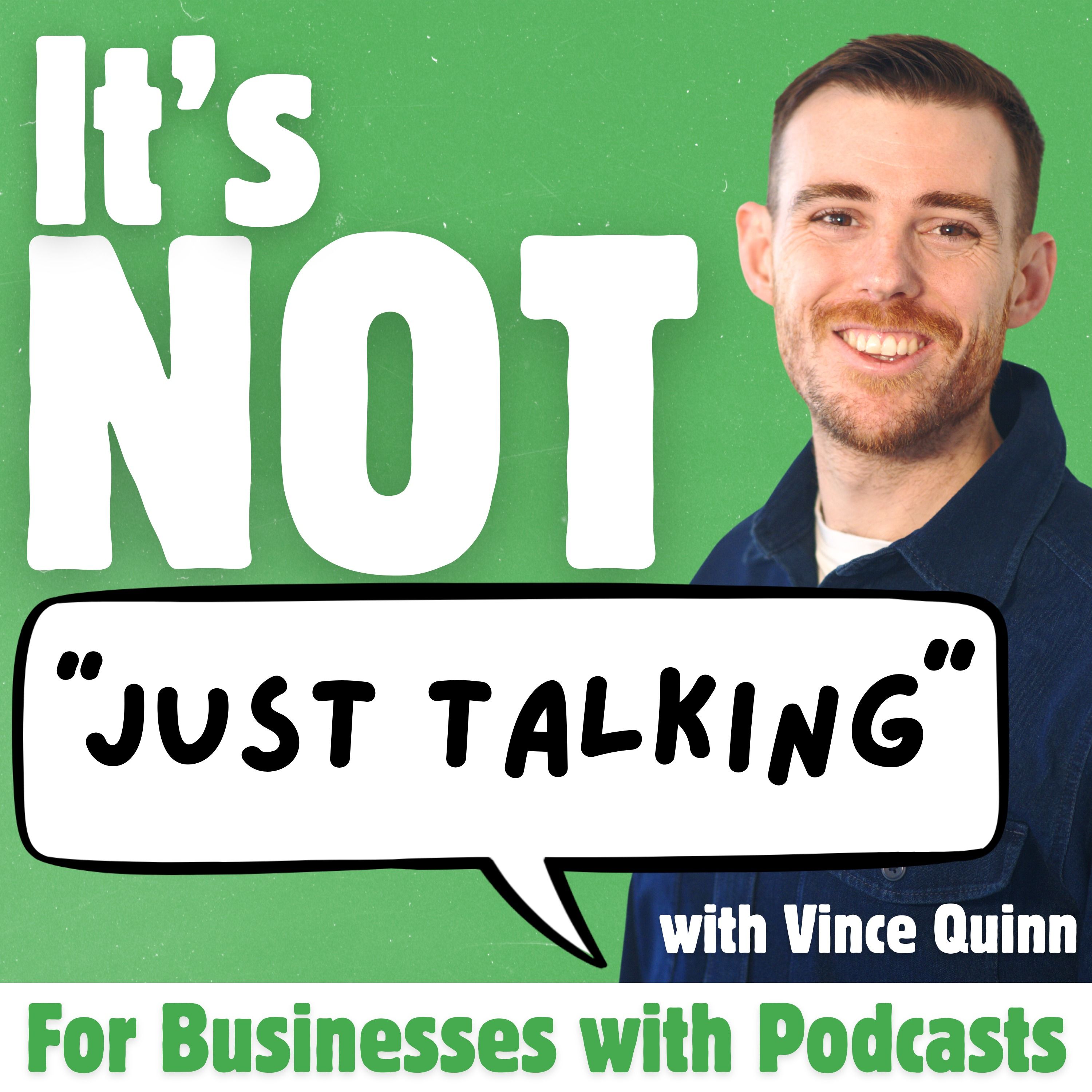
It's Not Just Talking with Vince Quinn
SBX Productions, Vince Quinn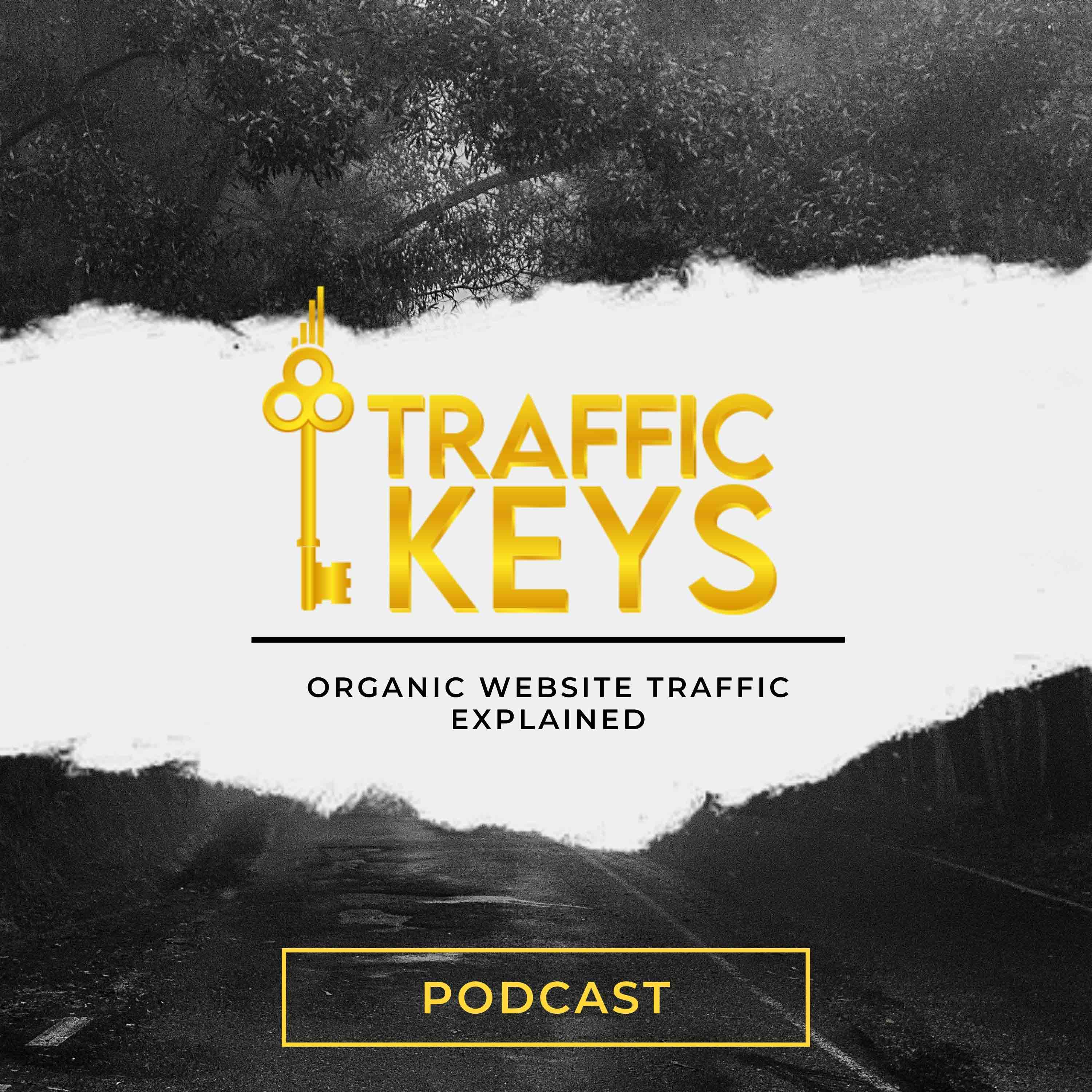
Traffic Keys Podcast
Atiba de Souza
I Have A Podcast by Vinnie Potestivo
Vinnie Potestivo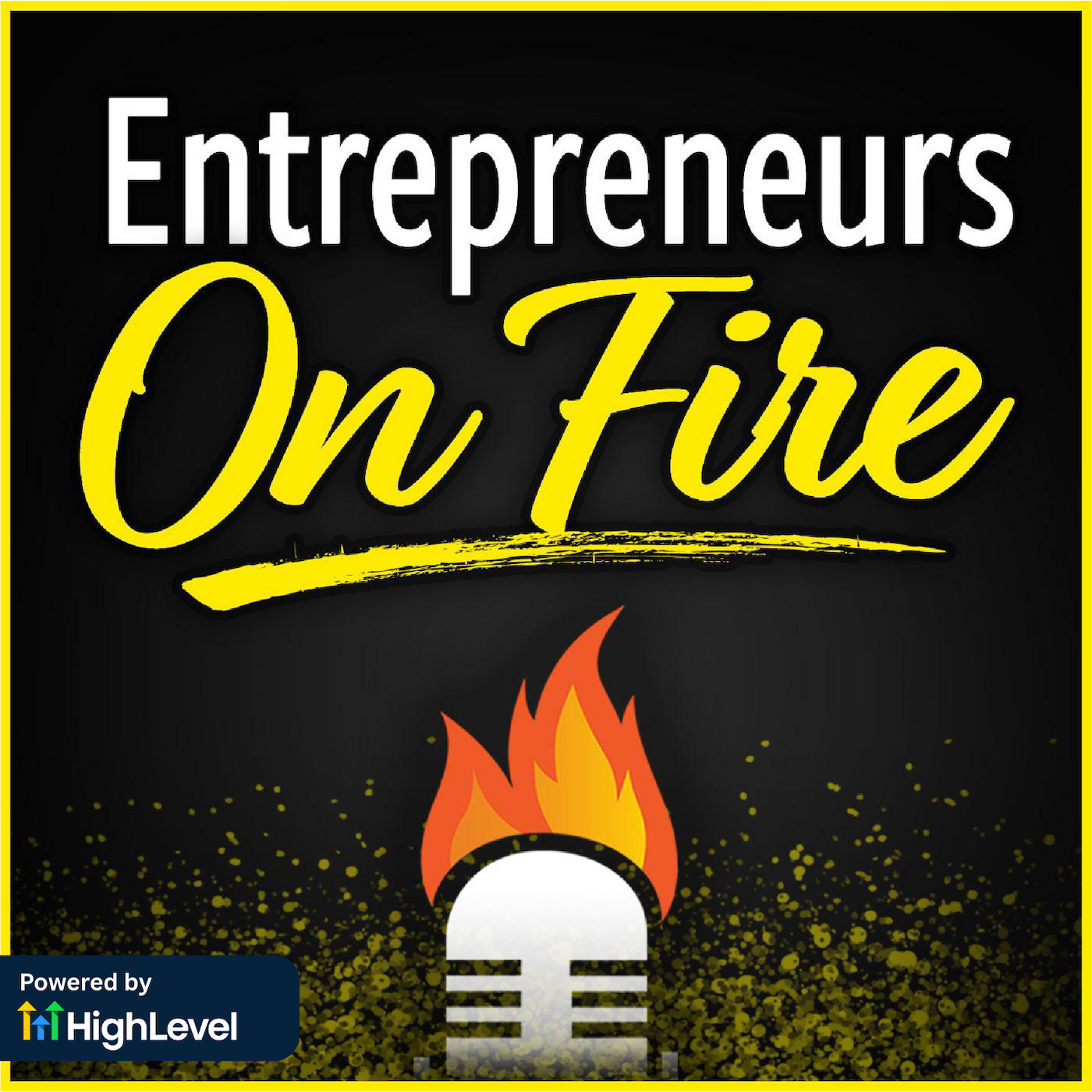
Entrepreneurs on Fire
John Lee Dumas of EOFire
Imperfect Marketing
Kendra Corman
Raise the Script with Nutrigenomics
Dr. Tamar Lawful, PharmD, APh, CNGS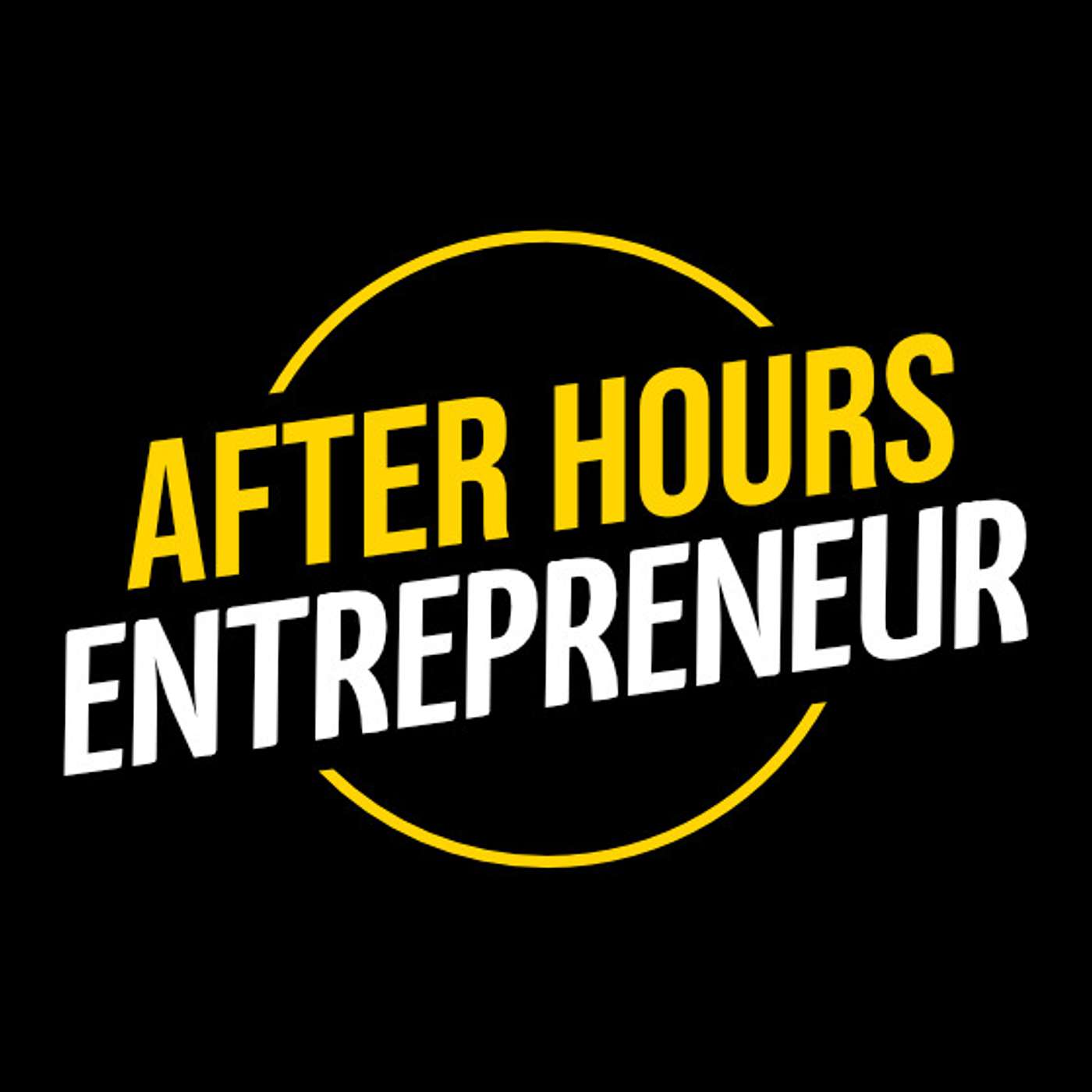
After Hours Entrepreneur with Mark Savant
Mark Savant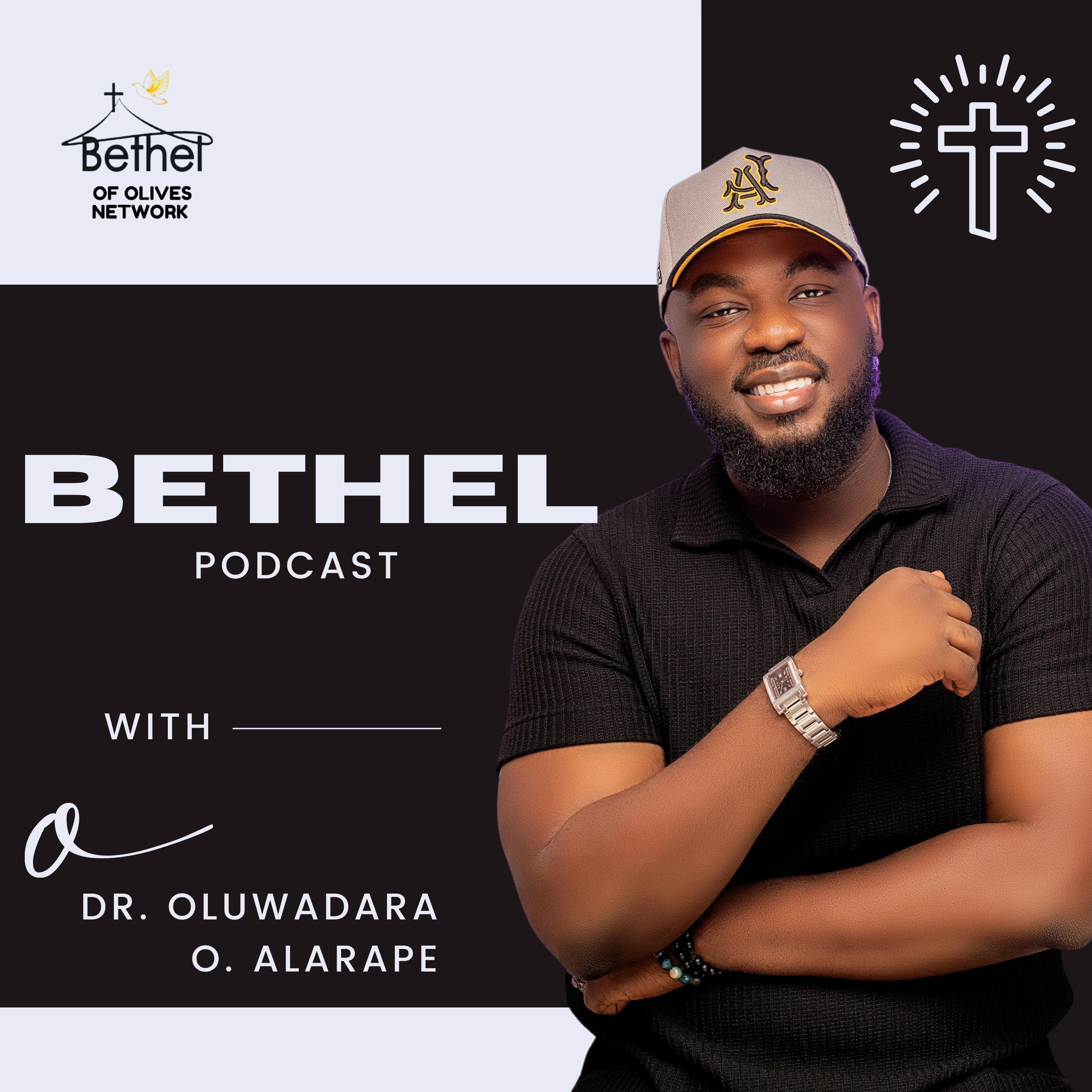
BETHEL
Dr. Oluwadara Alarape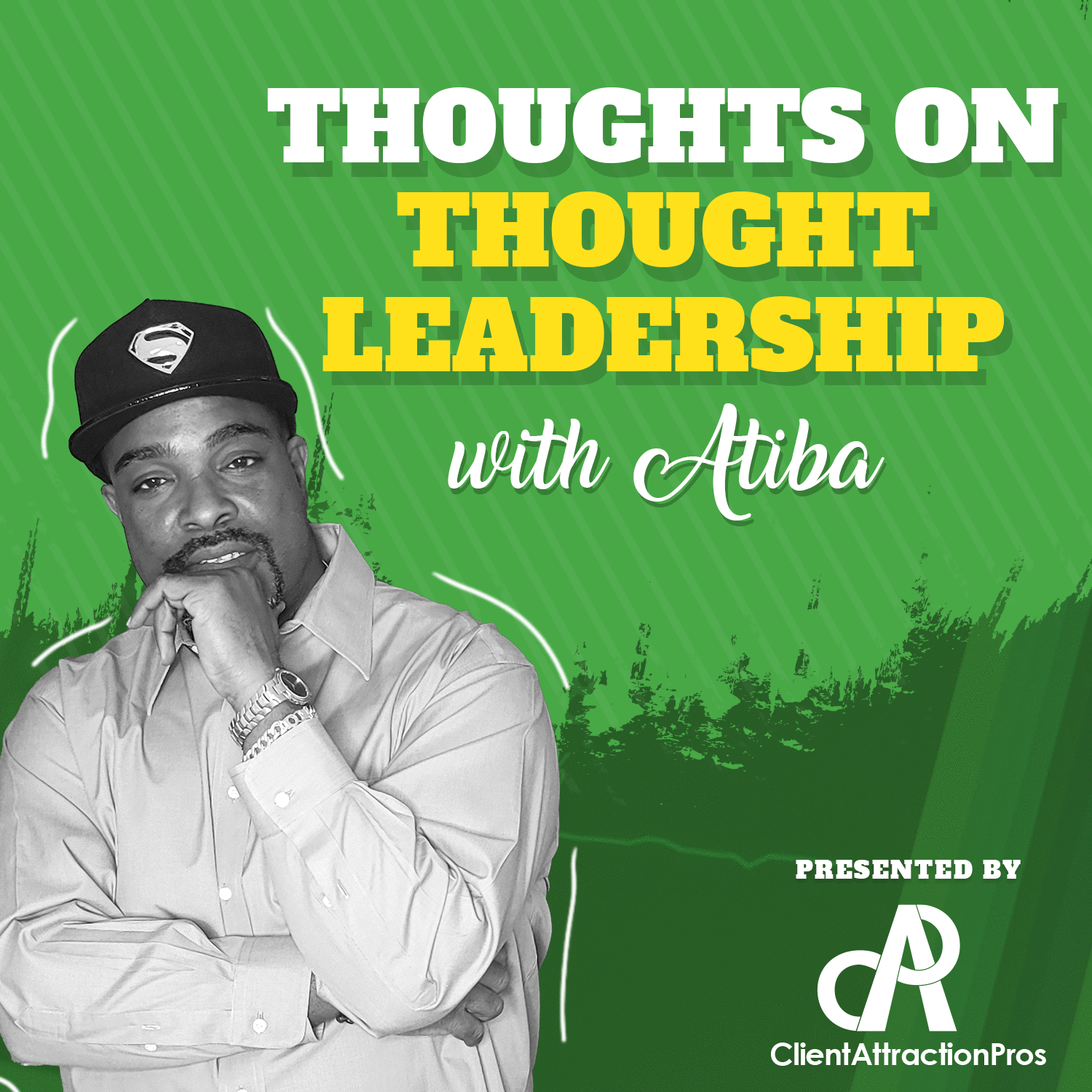
Thoughts on Thought Leadership with Atiba
Atiba de Souza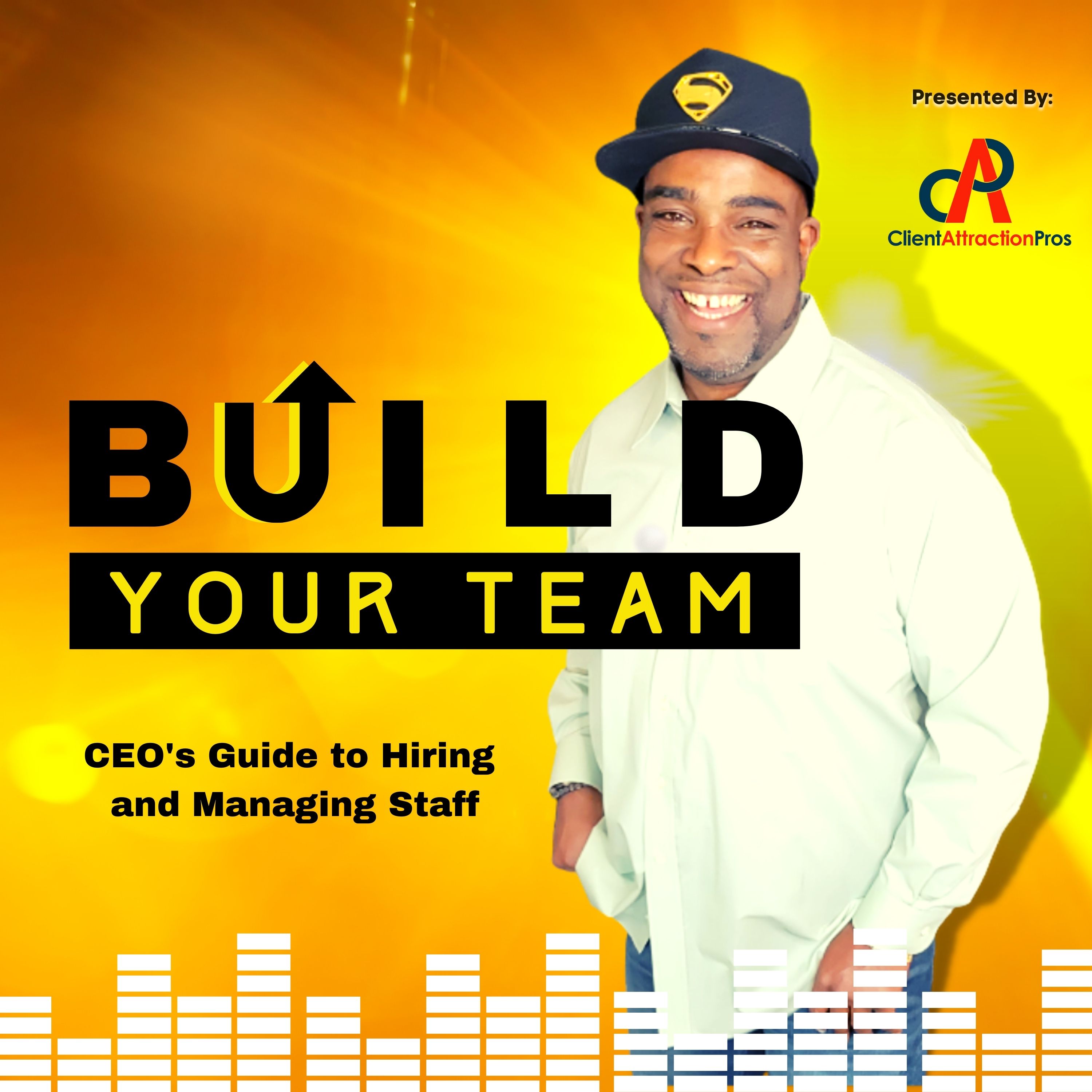
Build Your Team
Atiba de Souza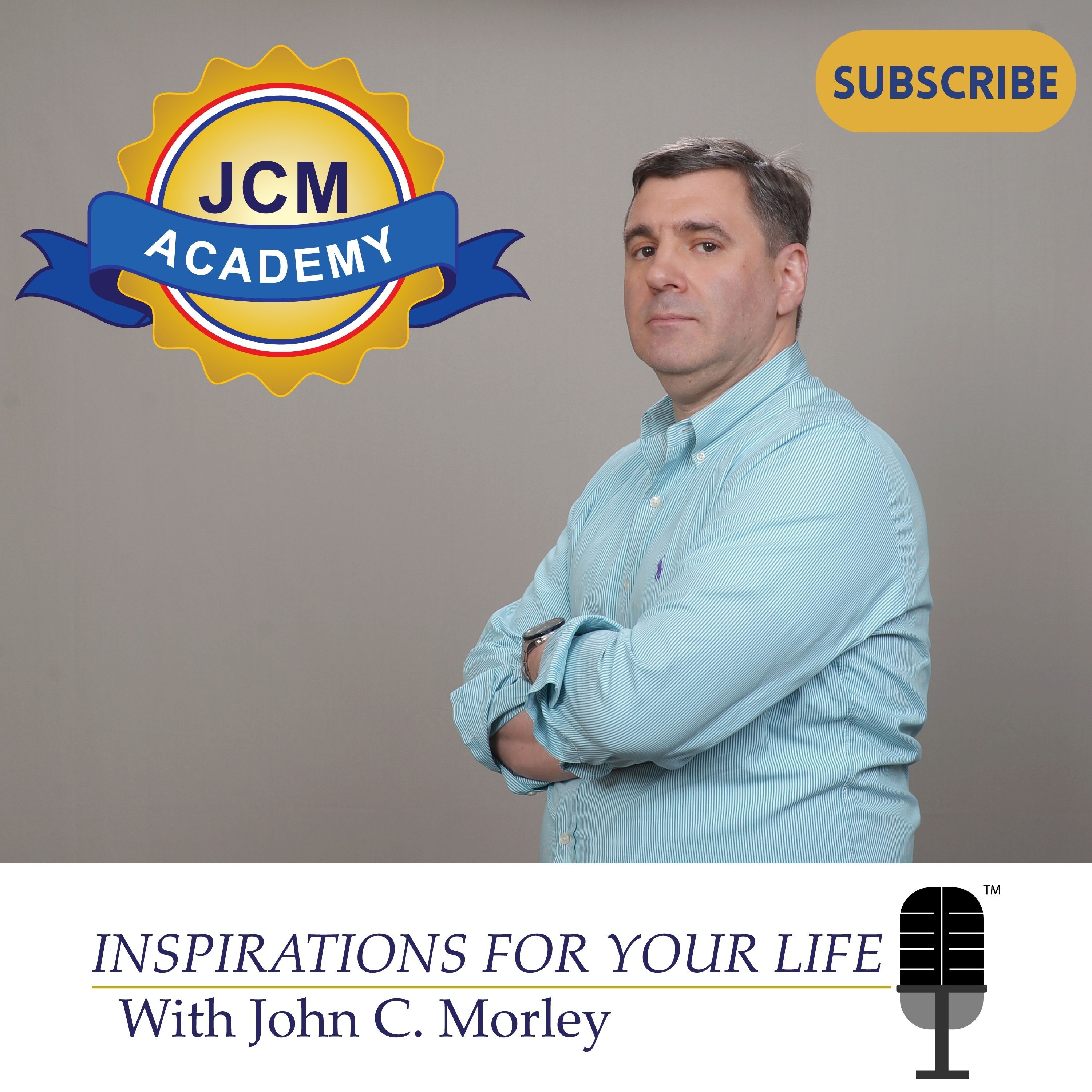
Inspirations for Your Life
John C. Morley, Serial Entreprener
Marketing in the Age of AI
Emanuel Rose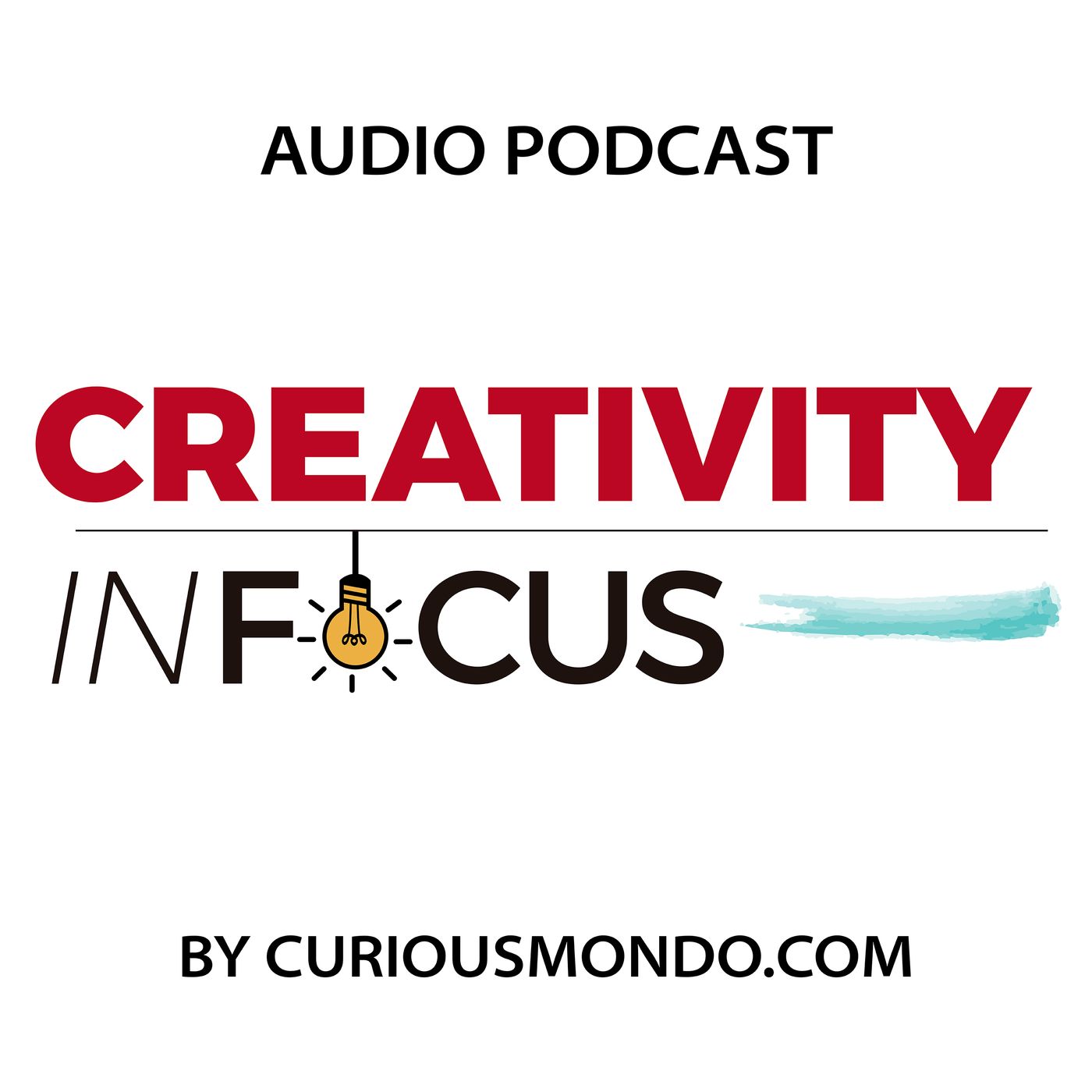
Creativity in Focus - Audio Only
Shahar Boyayan
Make Something Happen with Audrey Wiggins
Audrey Wiggins
The UnNoticed Entrepreneur
Jim James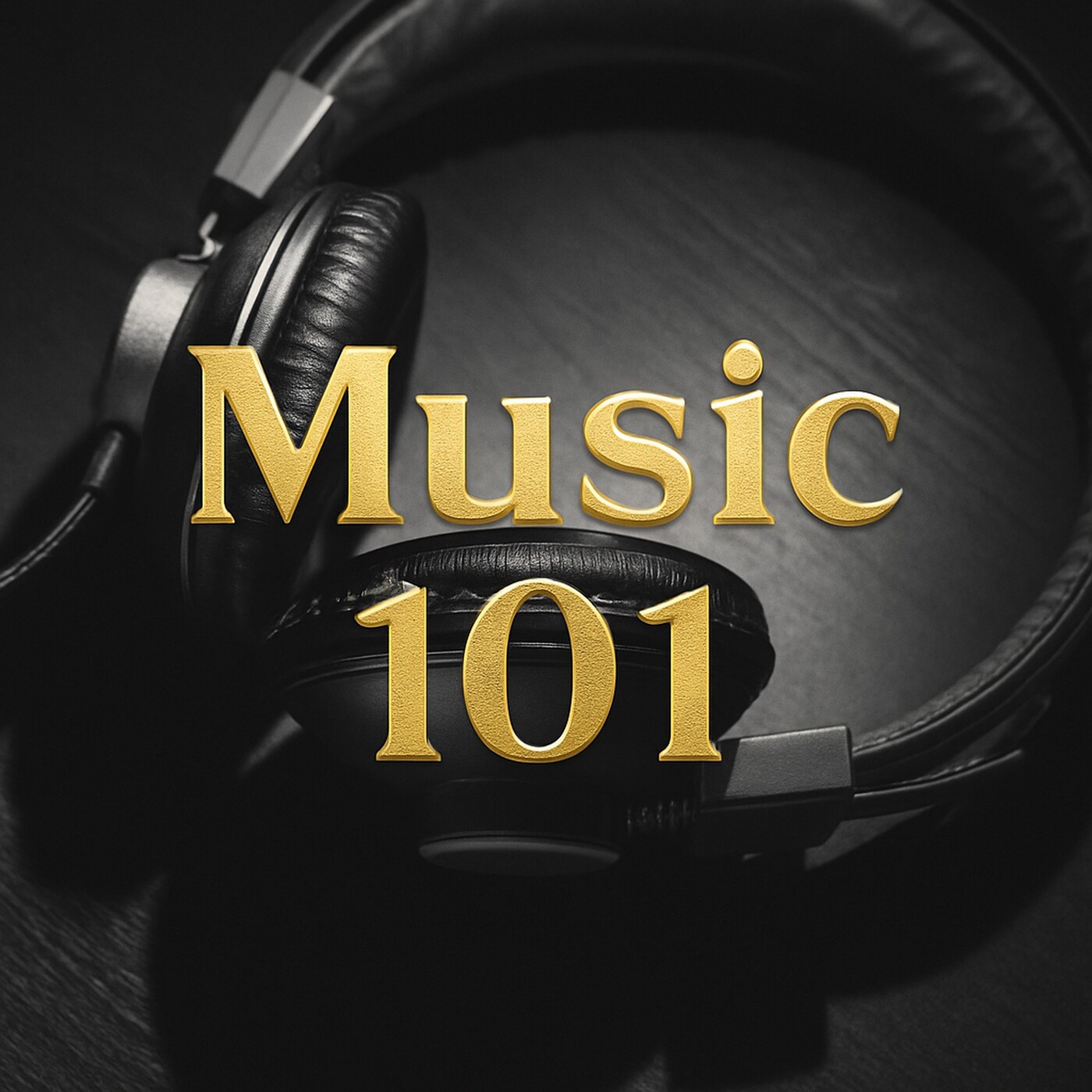
Music 101
Daniel Lucas / G.Mick Smith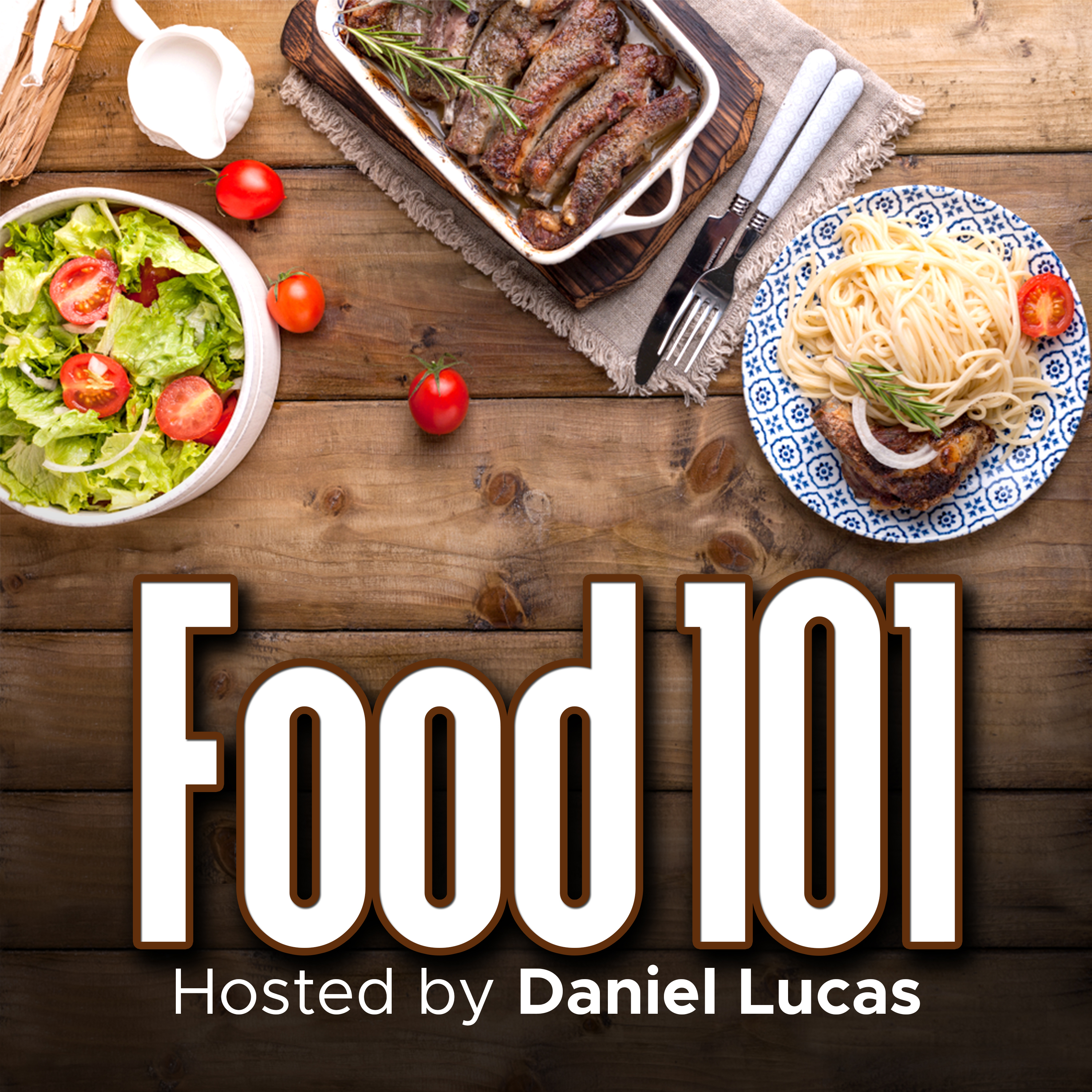
Food 101
Daniel Lucas/Alessandro Panattoni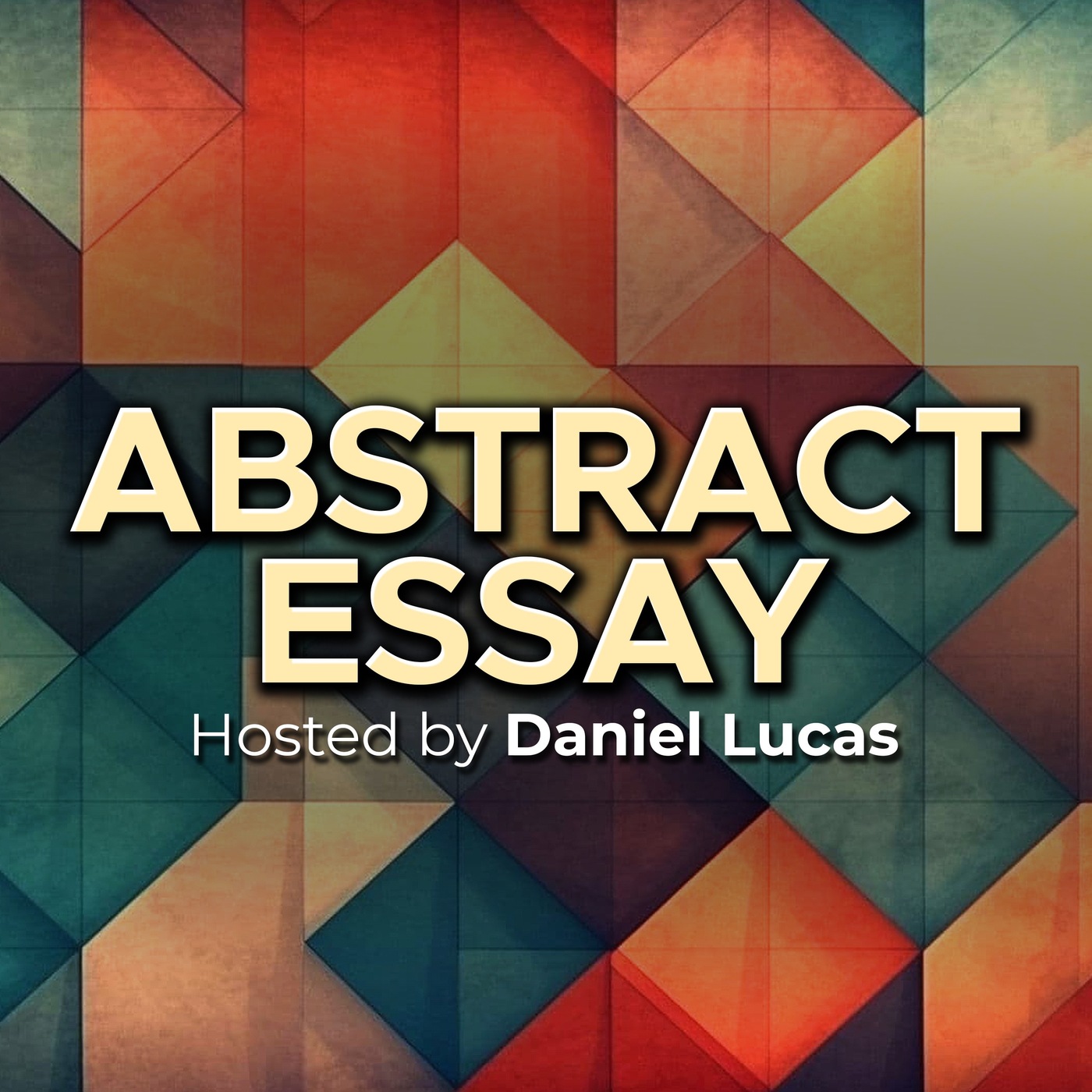
Abstract Essay
Daniel Lucas /Sal Cosenza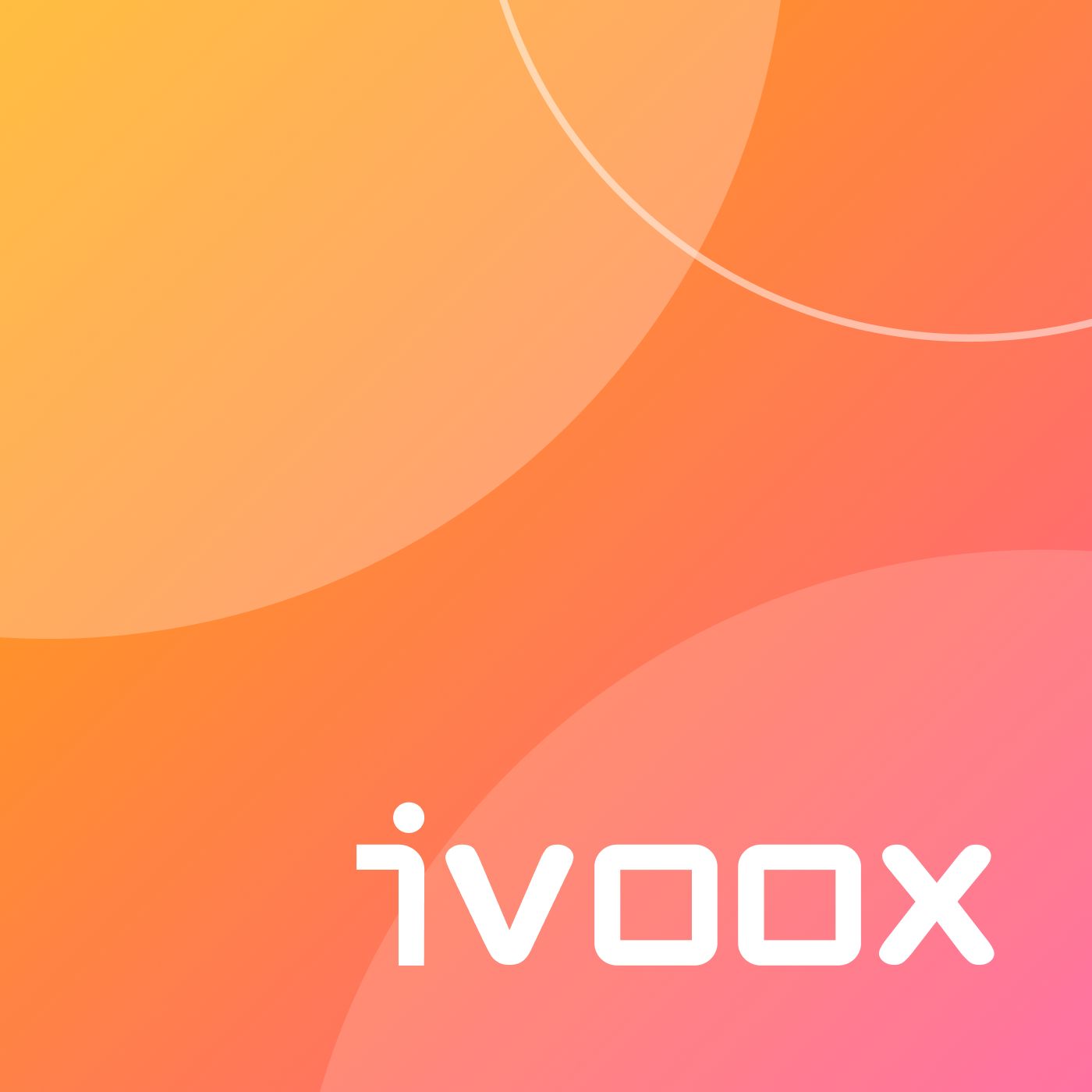
#iesgaherrera28d28sonidos
daniel lucas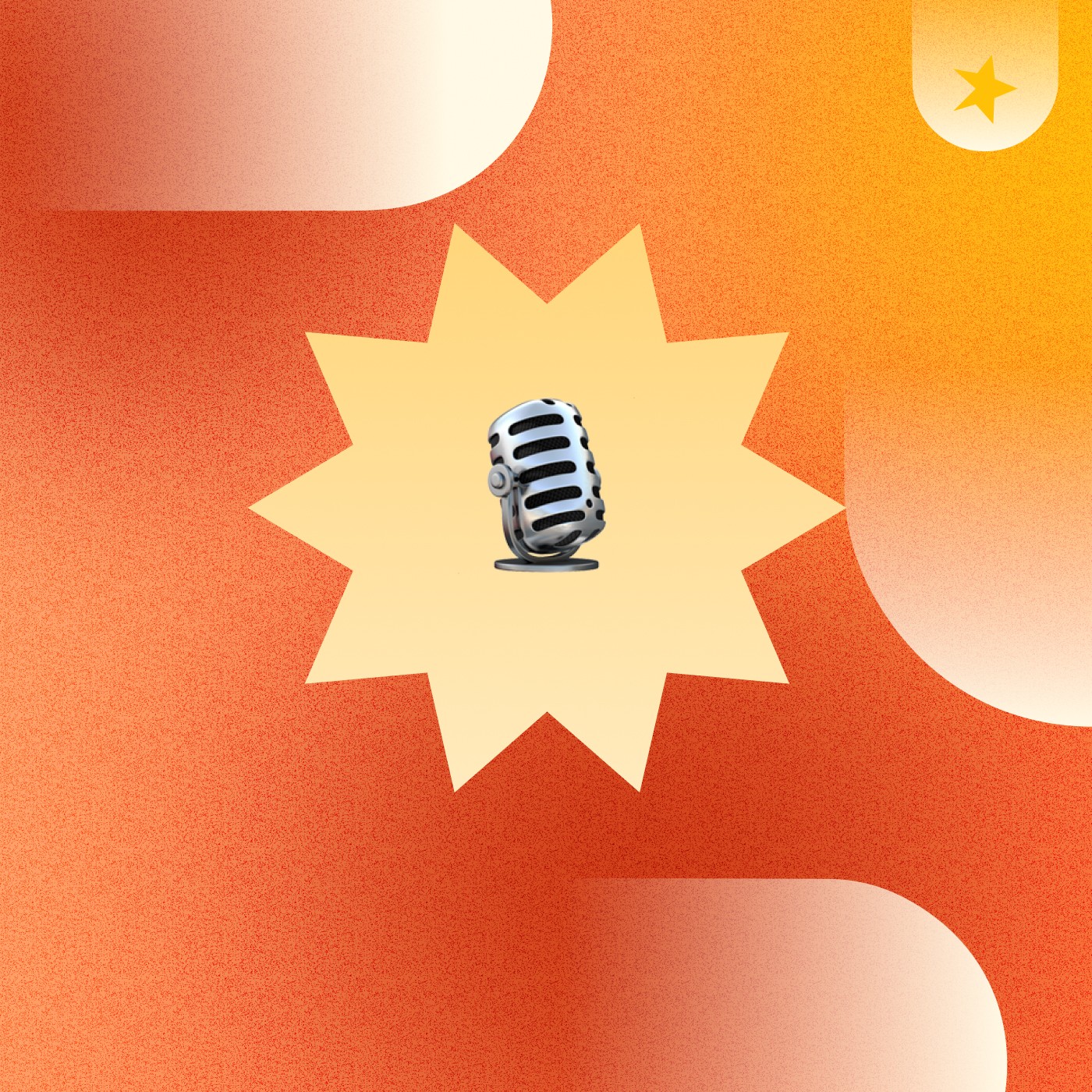
El podcast de Lucas Daniel Porra
Lucas Daniel PorraDaily Dose of Dave Podcast
Dave Valentine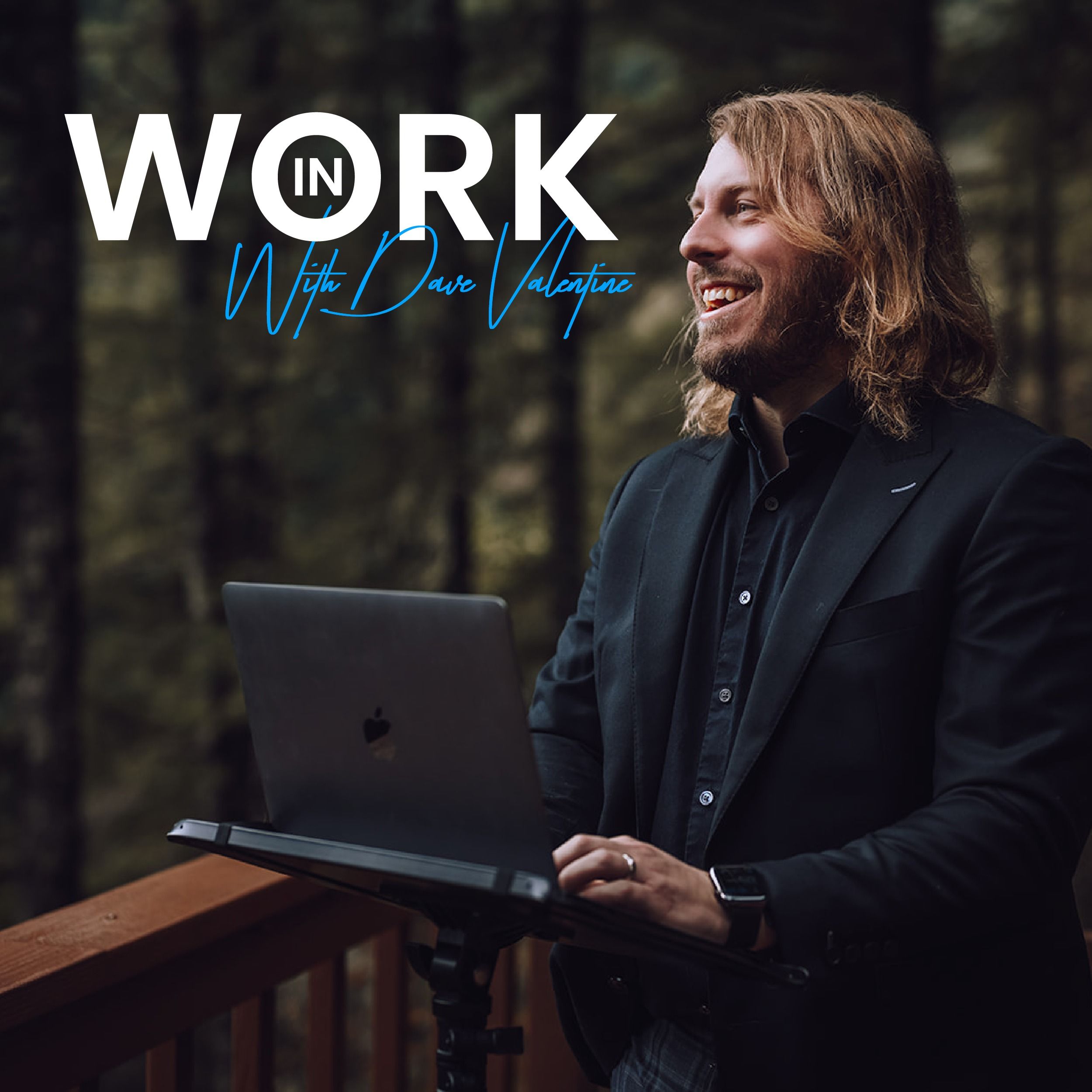
InWork Podcast with Dave Valentine
Dave Valentine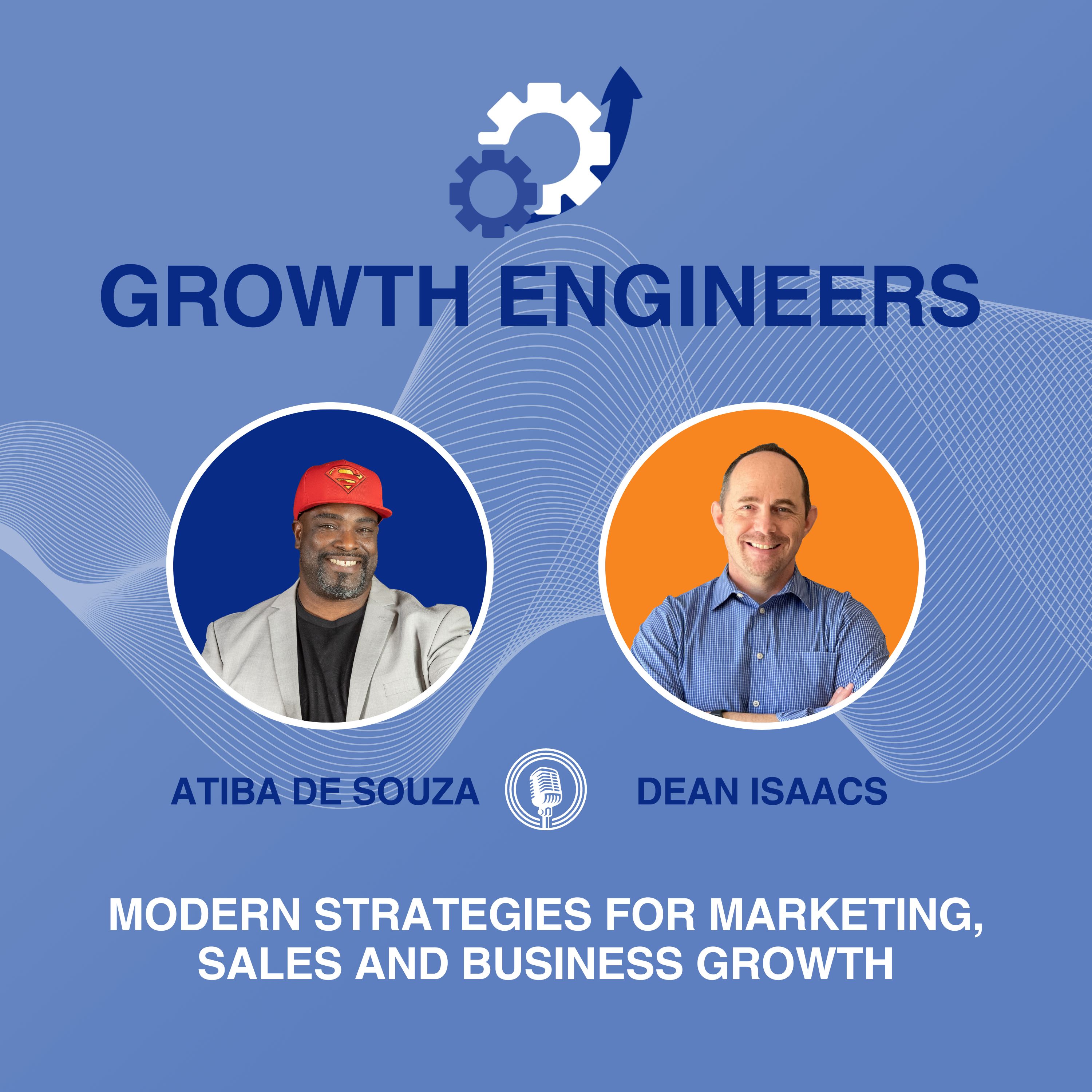
Growth Engineers
Atiba de Souza and Dean Issacs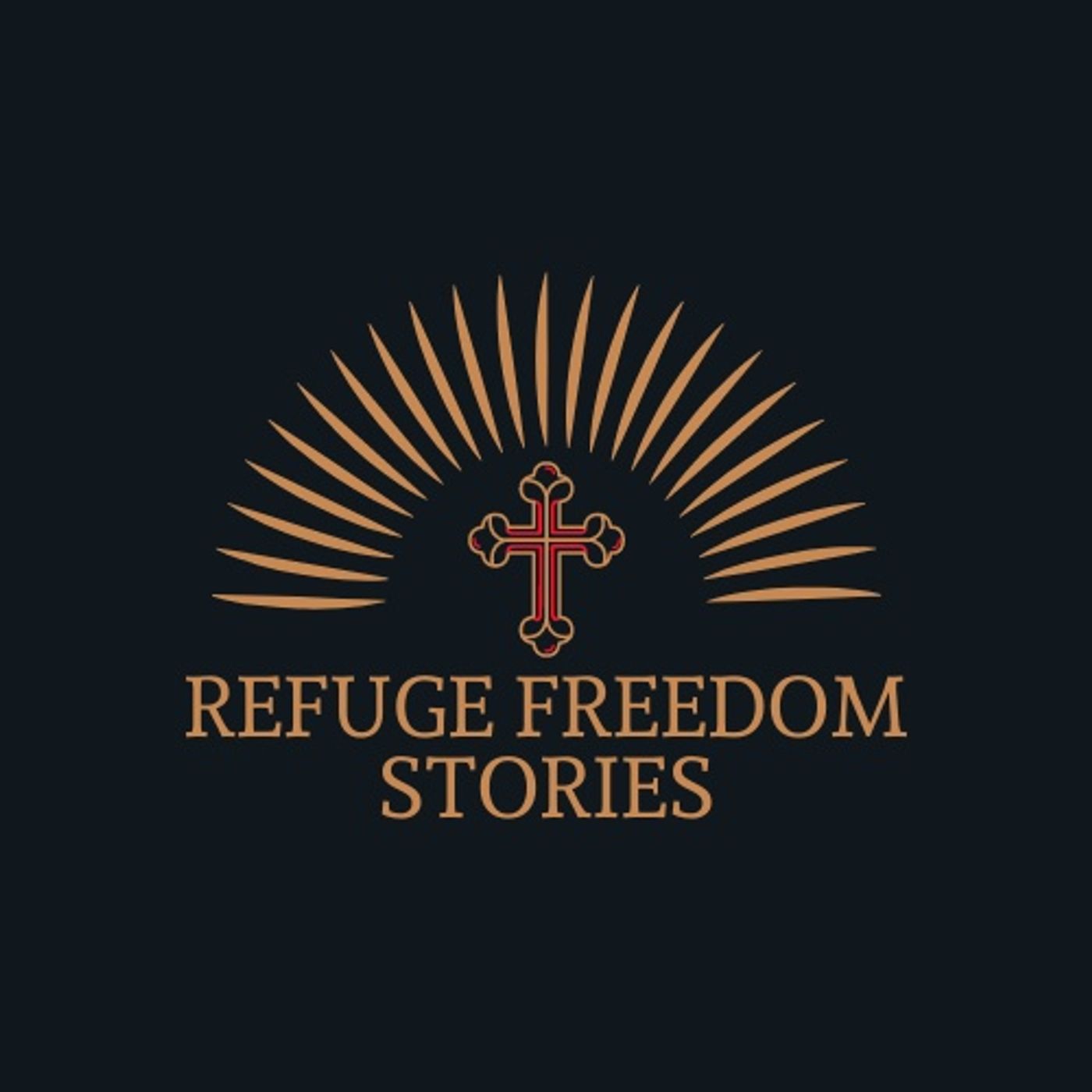
Refuge Freedom Stories
Jonnie Taverner
St. Augustine of Hippo: Expositions of the Psalms
Mary McDonald
Podcasting for Financial Professionals
Virginia Elder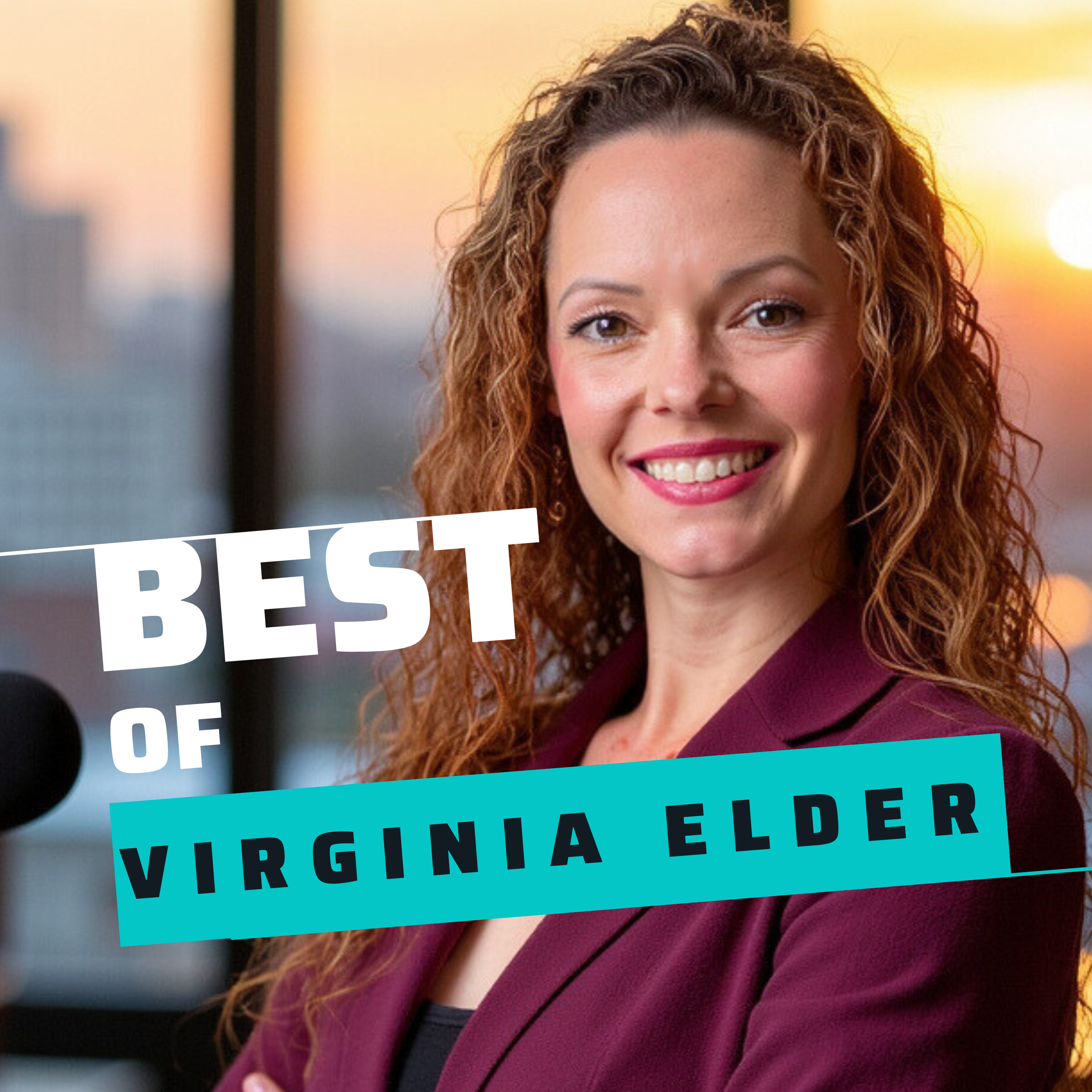
Best of Virginia Elder
Virginia Elder | Podcast Abundance
Gamify Business Tavern Tales
Paul Pape

